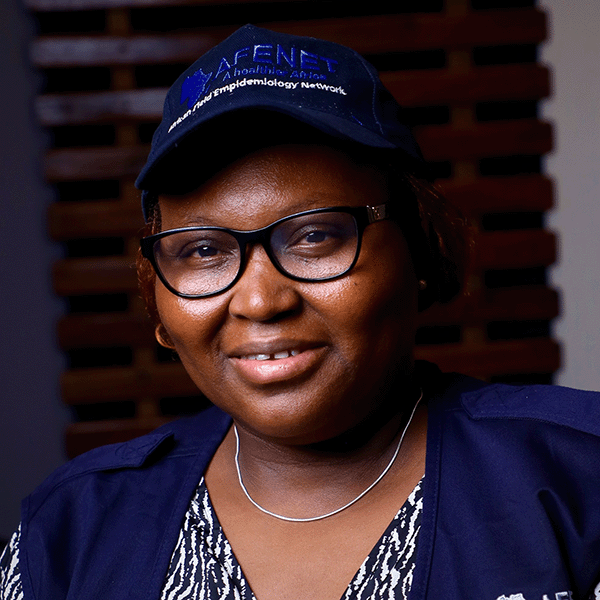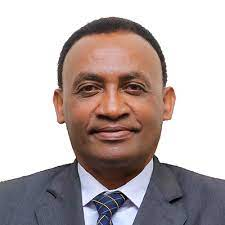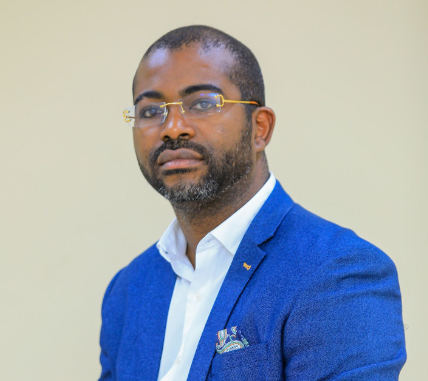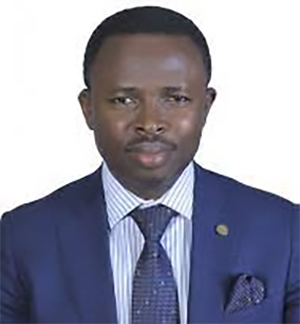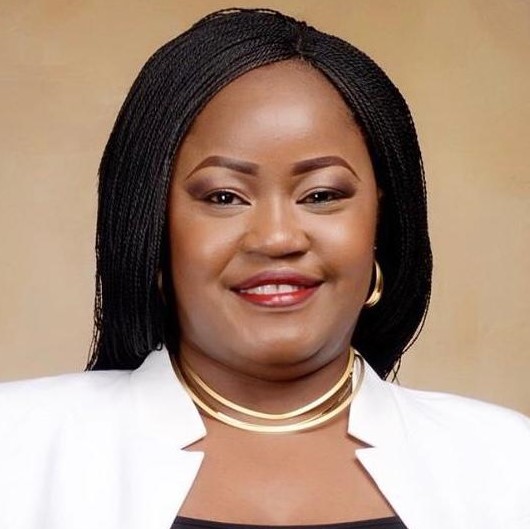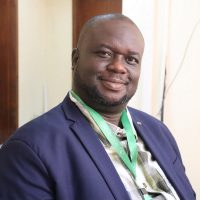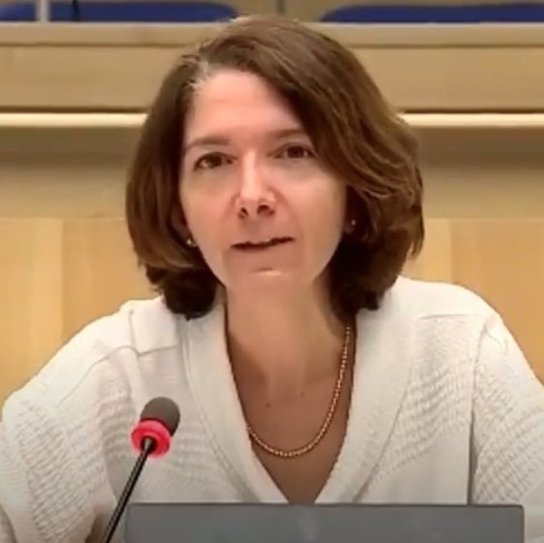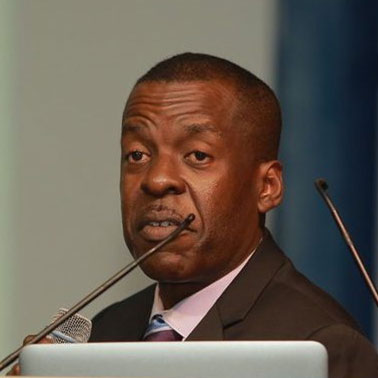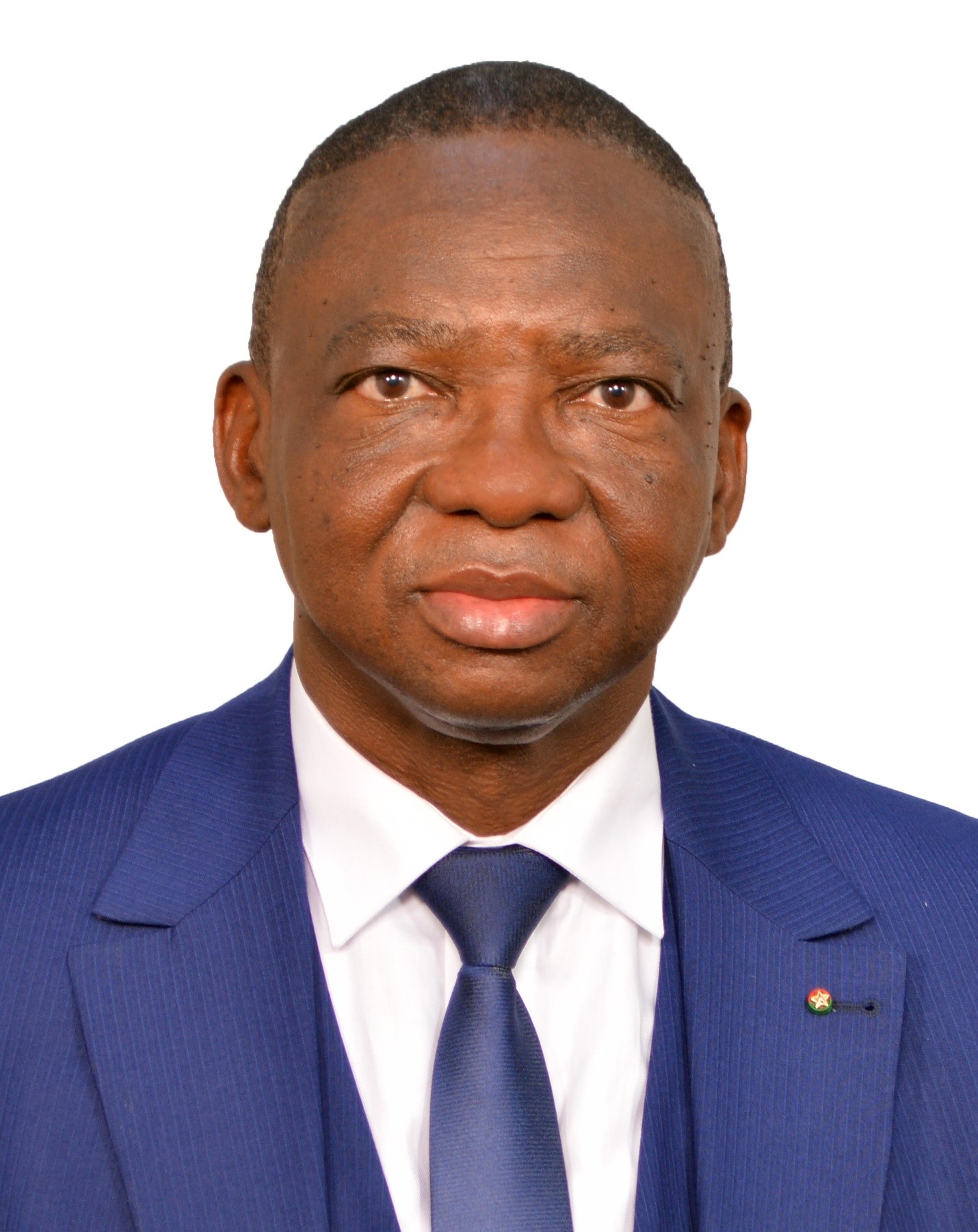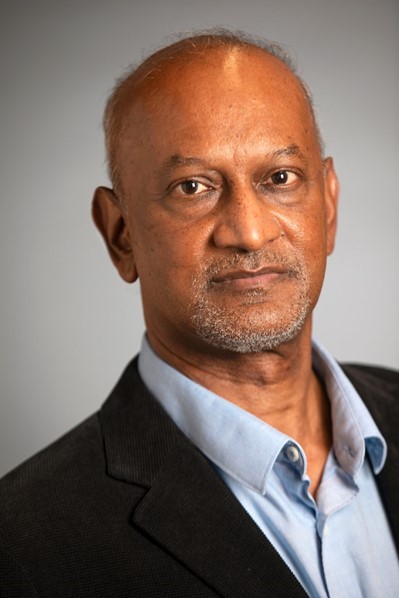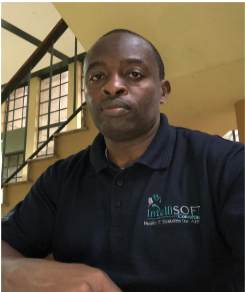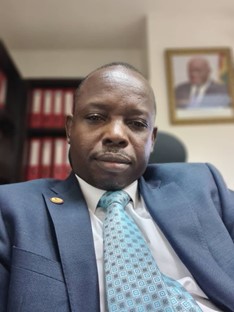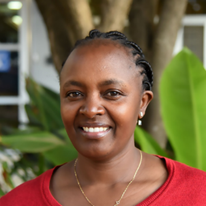The African Field Epidemiology Network (AFENET) in collaboration with the Kenya Field Epidemiology and Laboratory Training Program is organizing the 8th AFENET Scientific Conference to be held in Mombasa from 5-10 November 2023. This year’s conference is under the theme “Strengthening Public Health Systems in Africa Towards Enhanced Global Health Security: The Role of Field Epidemiology and Laboratory Training Programs”.
The conference provides a platform for the Field Epidemiology and Laboratory Training Program (FELTP) residents, graduates, the regional and global public health community as well as multi-lateral agencies to share experiences in field epidemiology and other facets of global health security.
Residents and graduates of FELTPs in Africa (Advanced, Intermediate, and Frontline) are invited to submit abstracts through their Program Directors/Resident Advisors. FELTP faculty members as well as other public health professionals with scientific work that is in line with the conference theme/sub-themes are also invited to submit abstracts.
The theme for the 8th AFENET Scientific Conference is “Strengthening Public Health Systems in Africa Towards Enhanced Global Health Security. The Role of Field Epidemiology and Laboratory Training Programs.” Subthemes are drawn from various topics that affect public health and health security as shown below.
The African Field Epidemiology Network (AFENET) is a not-for-profit networking and service organization dedicated to improving health outcomes of the communities we serve in liaison with ministries of health and other partners. Strengthening capacity for public health preparedness and response through Field Epidemiology (and Laboratory) Training Programs {FE(L)TPs}, and other applied epidemiology training programs is one of our core activities.
Established in 2005 with our Secretariat in Kampala, Uganda, we have presence in over 40 countries and at least 700 personnel in various locations.
Date: November 5th to 10th, 2023
Location: Pride Inn Hotel, Mombasa, Kenya
Event: 8th AFENET Conference
Join us for a compelling panel discussion as we shine a spotlight on the invaluable contributions of women in shaping the landscape of public health across Africa. These esteemed panelists, hailing from diverse corners of the continent, have blazed trails, pioneered innovations, and fueled transformative change within their respective fields. From community-centered conservation initiatives to groundbreaking epidemic preparedness efforts, these remarkable women have redefined leadership and ignited progress.
Through engaging discourse, personal anecdotes, and visionary insights, our panelists will delve into the multifaceted dimensions of women's roles in public health. Their journeys serve as inspirations, guiding the way for aspiring health professionals and leaders to make lasting impacts.
Mark your calendars for this illuminating event at the Pride Inn Hotel in the captivating city of Mombasa, Kenya. Let's celebrate the resilience, brilliance, and dedication of women in public health during the 8th AFENET Conference, taking place from November 5th to 10th, 2023. Your presence will enrich the dialogue and contribute to fostering a future where women's contributions in public health continue to flourish.
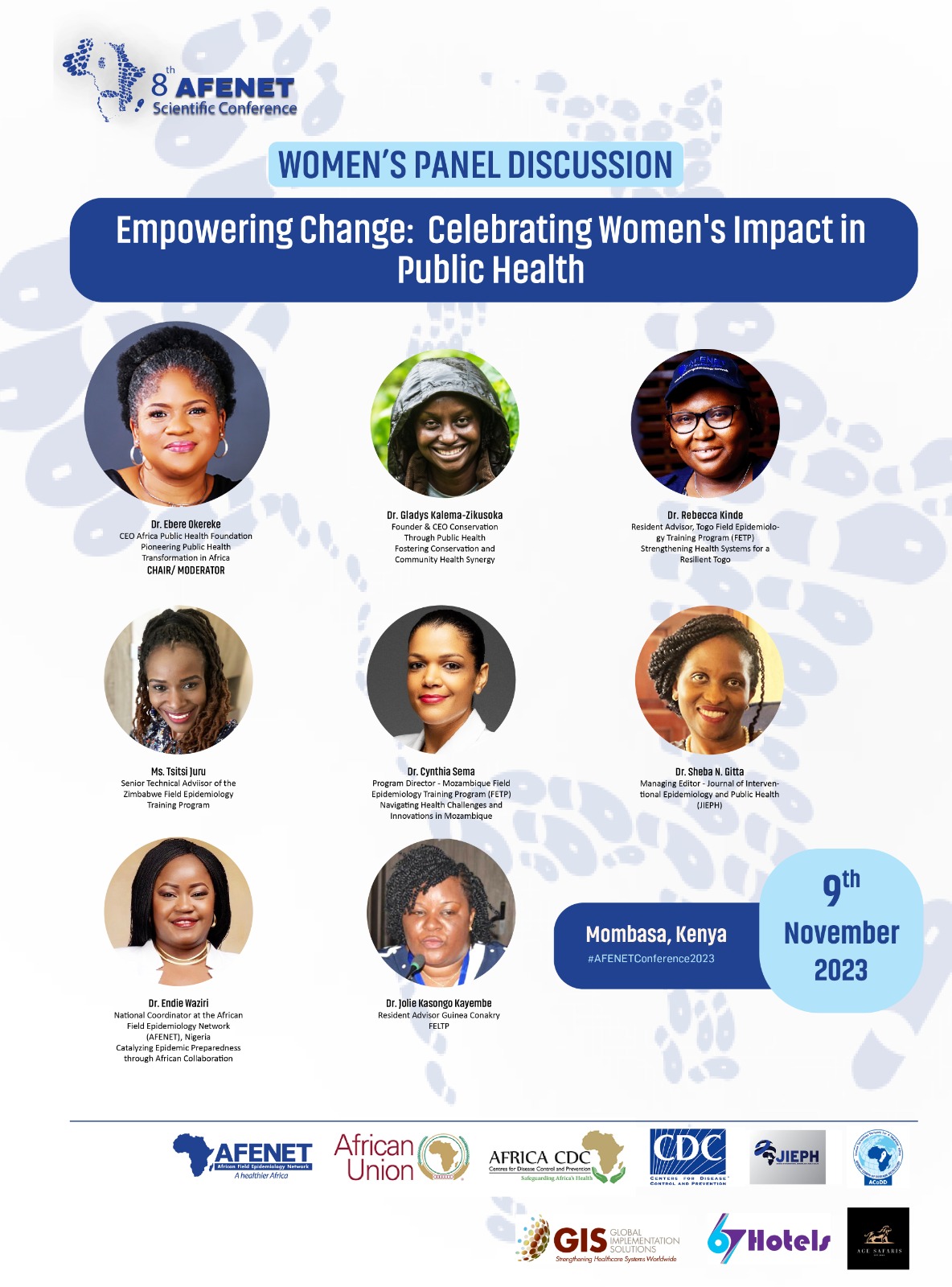
 November 5, 2023 08:00
November 5, 2023 08:00 November 6, 2023 08:30
November 6, 2023 08:30 November 6, 2023 10:00
November 6, 2023 10:00 November 6, 2023 10:30
November 6, 2023 10:30Moderators: Dr Suzanne Kiwanuka
Venue: Main Auditorium
10:30 - 10:55: Building a Fit-for-Purpose Public Health Workforce to Counter the Next Public Health Threat
Presenter: Dr Raji Tajudeen
10:55 - 11:20: The New Global Field Epidemiology Partnership and Its Strategy
Presenter: Dr Carl Reddy
11:20 - 11:40: Sustaining the gains of Field Epidemiology for Enhanced Global Health Security
Presenter: Dr Kip Baggett
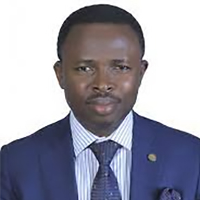 Dr Raji Tajudeen
Dr Raji Tajudeen 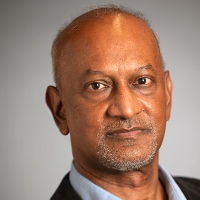 Dr Carl Reddy
Dr Carl Reddy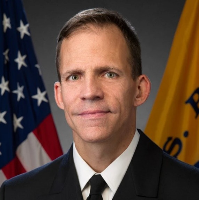 Dr Kip Baggett
Dr Kip Baggett November 6, 2023 11:45
November 6, 2023 11:45Sub-theme: Public Health Emergency Preparedness, Surveillance Outbreak Investigations and Response
Moderator: Dr Julie Haris
Evaluators: Gildo Okure / Joseph Frimpong
11:45 - 11:55: OP412: Cholera Outbreak following a Wedding Party in Kiambu, Central Kenya
Presenter: Sarafina Sikwata
11:55 - 12:05: OP468: Cholera Outbreak in Special Institutions Machakos County, Kenya,2022
Presenter: Serah Nchoko
12:05 - 12:15: OP659: Outbreak of Foodborne Illness associated with Pentobarbital contaminated Horse Meat- Havana Informal Settlement, Windhoek, Namibia, April 2020
Presenter: Monika Amunyela
12:15 - 12:25: OP696: Prevalence and trends of Typhoid fever in East Mamprusi District, 2022
Presenter: Adam Anas
12:25 - 12:35: OP557: A prolonged outbreak of enteric fever associated with illegal miners in the City of Matlosana, South Africa, November 2020 – September 2022
Presenter: Phuti Given Sekwadi
12:35 - 12:45: OP230: Epidemiological investigation of food poisoning outbreak, Kenema District, Sierra Leone, 2022
Presenter: Alhaji Mamoud Conteh
12:45 - 13:00: Questions and Answers
 November 6, 2023 11:45
November 6, 2023 11:45Sub-theme: Public Health Emergency Preparedness, Surveillance Outbreak Investigations and Response
Moderator: Dr Alex Ario Riolexus
Evaluators: Alain Magazani / Joseph Babalola
11:45 - 11:55: OP162: Ebola Virus Disease Spread by Super-spreaders in Uganda, 2022
Presenter: Allan Komakech
11:55 - 12:05: OP303: Rift Valley Fever outbreak in Sembabule District, December 2021
Presenter: Freda Loy Aceng
12:05 - 12:15: OP391: Épidémie de fièvre de Lassa importée à la clinique privée de Gbessia dans la région de Conakry, août 2022
Presenter: Lamah Vokpo
12:15 - 12:25: OP469: Investigation approfondie autour d’un cas confirmé de Fièvre Jaune dans le District Sanitaire de Gazaoua, région de Maradi, Niger, 2023
Presenter: Issiakou Aboubakar Gandou
12:25 - 12:35: OP5: Investigation d’une fièvre hémorragique de Crimée Congo chez les animaux dans la région de Saint-Louis, Sénégal, en 2022.
Presenter: Evariste Jean-Christophe Togut Bassene
12:35 - 12:45: OP813: Investigation des cas de dengue dans le district de Dikhil, Djibouti, Novembre 2021
Abdallah Houssein Ismael
12:45 - 13:00: Questions and Answers
 November 6, 2023 11:45
November 6, 2023 11:45Sub-theme: Public Health Emergency Preparedness, Surveillance Outbreak Investigations and Response
Moderator: Dr Gina Samaan
Evaluators: Doreen Gonahasa / Joseph Otshudi
11:45 - 11:55: OP524: Measles case investigation in Lumezi district in Eastern Zambia, January 2023
Presenter: Daliso Ngulube
11:55 - 12:05: OP674: Descriptive epidemiology and response to diphtheria outbreak in Nigeria, 2022 – 2023
Presenter: Bola Biliaminu Lawal
12:05 - 12:15: OP578: Investigation d’une épidémie de rougeole dans la région de Tillaberi, Niger du 30 janvier au 12 mai 2022
Presenter: Abdoulaye Goubakoye
12:15 - 12:25: OP398: Profil épidémiologique de la rougeole dans le département de la Donga, Bénin, 2017 à 2021
Presenter: Sanni Salifou-Issaka
12:25 - 12:35: OP358: Investigation des Cas de Rougeole à l’Hôpital Balbala Cheiko, Djibouti, Juin 2022
Presenter: Ahmed Rouffa Aballah
12:35 - 12:45: OP353: Measles Outbreak Investigation among Anti-Vaccination Religious Communities in Sinazongwe and Pemba Districts, Southern Province- Zambia, 2022
Presenter: Tebello Kolobe
12:45 - 13:00: Questions and Answers
 November 6, 2023 11:45
November 6, 2023 11:45Sub-theme: Public Health Emergency Preparedness, Surveillance Outbreak Investigations and Response
Moderator: Mr Samuel Assegid
Evaluators: Karimou Sani / Dr Shakir Balogun
11:45 - 11:55: OP361: Les prédicteurs de décès lié à la covid-19, à 30 jours d’hospitalisation dans la ville de Goma entre Mars 2020 – Septembre 2021
Presenter: Cosma Kajabika / Luberamihero
11:55 - 12:05: OP377: Predictors of Severe Covid-19 among Hospitalized Patients in Zambia, 2020-2021
Presenter: Oliver Mweso
12:05 - 12:15: OP415: Characteristics and outcomes of COVID-19 patients hospitalized at a central hospital in Harare, 2020-2022
Presenter: Linda Nyasha Kanzara
12:15 - 12:25: OP738: SARS-CoV-2 post-mortem testing of out-of-hospital natural deaths - Mangaung metropolitan area, Free State Province, South Africa - August 2020 to August 2022
Presenter: Brian Brummer
12:25 - 12:35: OP843: Factors associated with Mortality among Patients with Severe Covid-19 in Nairobi Metropolis, Kenya
Presenter: Charles Mulwa Muendo
12:35 - 12:45: OP852: Evaluation du système de surveillance de la maladie à Corona virus (Covid-19) dans la région de N’zérékoré, République de Guinée, novembre 2021
Presenter: Sira Helene GUILAVOGUI
12:45 - 13:00: Questions and Answers
 November 6, 2023 13:00
November 6, 2023 13:00 November 6, 2023 14:00
November 6, 2023 14:00Sub-theme: Public Health Emergency Preparedness, Surveillance Outbreak Investigations and Response
Moderator: Prof Mamadou / Dr Joyce Wamicwe
Evaluators: Yaya Balayira / Ndeta Caren
14:00 - 14:05: PP64: Risk factors of mortality due to Covid -19 in the Tigray region of Ethiopia: A cross-sectional study
Presenter: Kissanet Tesfay Weldearegay
14:05 - 14:10: PP143: Prevalence and predictors of self-medication for COVID-19 among slum dwellers in Jinja City, Uganda
Presenter: Prossy Nakito
14:10 - 14:15: PP154: COVID-19 outbreak among refugees at Nyakabande Transit Centre, Kisoro District, Uganda, June–July 2022
Presenter: Peter Chris Kawungezi
14:15 - 14:20: PP240: Déterminants de l’acceptabilité de la vaccination contre la COVID-19, régions du Centre-Sud, Sud-Ouest, Centre-Ouest et Centre au Burkina Faso, juin 2022
Presenter: Aristide Compaoré
14:20 - 14:25: PP276: Health care workers knowledge, perceptions and attitudes towards Coronavirus Disease 19 prevention and control during the pandemic in Tigray, Ethiopia
Presenter: Gebretsadik Berhe
14:25 - 14:30: PP319: Evaluation of Covid-19 Surveillance System in Ogun State, Nigeria: April 2020 – May 2021
Presenter: Adesoji Olatunde Odukoya
14:30 - 14:45: Questions and Answers
14:45 - 14.50: PP335: Prevalence of SARS-CoV-2 Infection in the Influenza-Like Illness and Severe Acute Respiratory Infection Sentinel Surveillance System— Zambia, 2021-2022
Presenter: Grace Funsani
14:50 - 14:55: PP380: Facteurs associés à la gravité de la covid-19 chez les malades hospitalisés dans la ville de Goma, Mars 2020 et septembre 2021
Presenter: Cosma Kajabika Luberamihero
14:55 - 15:00: PP430: Investigation des cas de Covid -19 dans le district de Nongrémassom dans la région du Centre, Burkina Faso 2023
Presenter: Clarisse BALIMA
15:00 - 15:05: PP518: SARS-CoV-2 positivity test and associated factors in Karongi district, Rwanda: A cross-sectional study
Presenter: Jean Paul Niyomugabo
15:05 - 15:10: PP801: Descriptive Epidemiology of COVID-19 - Ayawaso West Municipal, Greater Accra, 2022
Presenter: Jennifer Nai-Dowetin
15:10 - 15:15: PP637: Epidemiology of Covid-19 deaths reported at Rundu Intermediate hospital, Kavango East region, Namibia, March 2021- March 2023
Presenter: Annety Kabuba Likando
15:15 - 15:30: Questions and Answers
 November 6, 2023 14:00
November 6, 2023 14:00Sub-theme: Public Health Emergency Preparedness, Surveillance Outbreak Investigations and Response
Moderator: Prof Nicholas Meda
Evaluators: Celestine Ameh / Davis Ashabe
14:00 - 14:05: PP13: Analyse des données de surveillance de la fièvre de la vallée du Rift chez les humains en Mauritanie de 2011 à 2021
Presenter: Cheikh Zeini Abd El Jelil
14:05 - 14:10: PP235: Early evaluation of the alert system used during response to the Sudan Ebola Virus Outbreak, Mubende District, Uganda—2022
Presenter: Denis Okethwangu
14:10 - 14:15: PP383: High fatality of Lassa fever outbreak, Bo District, Sierra Leone, February 2023
Presenter: Hassan Swarray
14:15 - 14:20: PP410: Maladie à virus de Marburg : séroprévalence, facteurs associés, connaissances, attitudes et pratiques de la population de trois sous-districts de Guéckédou, mai 2022
Presenter: Thierno Bassirou Baldé
14:20 - 14:25: PP471: Dengue Fever Outbreak-Howl-wadag district, Mogadishu city, Somalia October, 2022.
Presenter: Bisma Abdullahi Maalin
14:25 - 14:30: PP876: Improving Timeliness and Completeness of Reporting of weekly surveillance data, Mbarara District, Uganda, Weeks 22 to 34, 2022
Presenter: Sylvia Ayebare
14:30 - 14:45: Questions and Answers
14:45 - 14.50: PP503: Epidemiological Investigation of a Dengue Fever Outbreak in Hodan District, Benadir Region, Somalia
Presenter: Saido Abdirahman Gedi
14:50 - 14:55: PP577: Assessment of Preparedness for Ebola Virus Disease outbreak at Points of Entry and Isolation Sites in western Kenya Counties, 2022
Presenter: Stephen Okumu Opiyo
14:55 - 15:00: PP649: Investigation Autour D’un Cas Confirme De Fievre Jaune Dans Le District Sanitaire De Mbaiki, Prefecture De La Lobaye, Republique Centrafricaine, Decembre 2022
Presenter: Ghislain Alain Tiburce GREWA
15:00 - 15:05: PP807: Le Profil Epidémiologique de Fièvre de la Vallée du Rift (FVR) chez les animaux, en Mauritanie, Août 2022
Presenter: Mohamed Saleck Amar
15:05 - 15:10: PP840: Descriptive Characterization of Yellow Fever Cases in Upper East Region, Ghana, 2022
Presenter: Simon Effah Adjei
15:10 - 15:15: PP723: Evaluation du Système de Surveillance de la Fièvre Jaune dans la région de Niamey, Niger 2022
Presenter: Moussa Ahamadou
15:15 - 15:30: Questions and Answers
 November 6, 2023 14:00
November 6, 2023 14:00Sub-theme: Public Health Emergency Preparedness, Surveillance Outbreak Investigations and Response
Moderator: Dr Raphael Mbailao
Evaluators: Tsitsi Juru / Dr Ben Masiira
14:00 - 14:05: PP23: Factors associated with the persistence of meningitis cases in Burkina Faso from 2012 to 2021
Presenter: Guillaume Touwendyam Yanogo
14:05 - 14:10: PP62: Evaluation du système de surveillance de la méningite dans la région de Niamey, Niger 2021
Hadjara Aboubacar
14:10 - 14:15: PP202: Meningitis Epidemiology and Pattern in Yemen Conflict Country
Adnan Mohammed Al-Hindi
14:15 - 14:20: PP279: Evaluation du système de surveillance de la méningite dans le département de l’Alibori, Bénin, 2017 à 2021
Zoubérou Bio Béri
14:20 - 14:25: PP288: Factors associated with acute bacterial meningitis before and after the introduction of conjugate vaccine A in 2017 in Mali – Bamako, 2021
Presenter: Toumani SIDIBE
14:25 - 14:30: PP341: Investigation of a meningitis outbreak in the Bouza Health District, Niger 2022
Presenter: Moussa Ahamadou
14:30 - 14:45: Questions and Answers All
14:45 - 14.50: PP366: Evaluation du système de surveillance de la méningite dans la zone de sante de Selembao, 2022
Presenter: Blandine KISANGANI
14:50 - 14:55: PP463: Investigation d’une flambée de Méningite dans un centre de santé intégré du district sanitaire de Magaria, région de Zinder, Niger, 2023
Presenter: Aboubacar Manzo Mariama
14:55 - 15:00: PP819: Profil épidémiologique de la méningite dans le département de l’Alibori, Bénin du 1er janvier 2017 au 31 décembre 2021
Presenter: Zoubérou Bio Béri
15:00 - 15:05: PP803: Investigation of Measles Deaths, Dandum Sanitary Area, Gabu Region-Guinea Bissau, 2022
Presenter: Carlota Martinho Sá
15:05 - 15:10: PP733: Measles in Ogun State; a five-year review of case based surveillance data, 2016-2020
Presenter: Saheed Olalekan Akinbowale
15:10 - 15:15: PP645: Investigation of Measles Outbreak - Chief Albert Luthuli (CAL) sub-district, Mpumalanga Province, South Africa, March 2023
Presenter: Sizwe Nkosinathi Khumalo
15:15 - 15:30: Questions and Answers
 November 6, 2023 14:00
November 6, 2023 14:00Sub-theme: Public Health Emergency Preparedness, Surveillance Outbreak Investigations and Response
Moderator: Dr Amadou Jallow
Evaluators: Hanine Keita / Gerald Shambira
14:00 - 14:05: PP236: Descriptive Epidemiology of Mpox Outbreak in Delta State, Nigeria December 2022
Presenter: Anthonia Chukwuemeka
14:05 - 14:10: PP344: Monkeypox outbreak investigation in Gbarpolu County, Liberia, March 18, 2023: A preliminary report
Presenter: Thomas Zubah. Kowel
14:10 - 14:15: PP379: Investigation d’une épidémie de Monkeypox dans la zone de santé de Popokabaka, Kwango, République Démocratique du Congo, 2022
Presenter: Alphonse Nkololo Tshonaka
14:15 - 14:20: PP455: Investigation d’une épidémie de Mpox dans l’aire de santé lofuko, zone de santé de Befale, Tshuapa, République Démocratique du Congo, 2022
Presenter: Jacques LOMANGA
14:20 - 14:25: PP491: Investigation autour d’un cas suspect de variole de singe (Monkeypox), localité d’Iboke-v2, district sanitaire de Tabou, région de San Pedro, Côte d’Ivoire, 30 Juillet 2022
Presenter: Kalifa Coulibaly
14:25 - 14:30: PP658: Investigation d’un cluster de cas suspects de Variole de singe dans la maison carcérale de Mbaïki, dans la sous-préfecture de Mbaïki, préfecture de la Lobaye, République Centrafricaine, octobre 2022
Presenter: Paulette Rose Josephat Mbay Yamotende
14:30 - 14:45: Questions and Answers
14:45 - 14.50: PP781: Descriptive Epidemiology of Monkeypox in Imo State: Outbreak Investigation and Response-2022, Southeastern Nigeria
Presenter: Hyacinth Chukwuebuka Egbuna
14:50 - 14:55: PP579: Assessment of timeliness and completeness of reporting, Serowe, Botswana, January 2023
Presenter: Dziidzo Doreen Leshiba
14:55 - 15:00: PP399: Investigation d’un phénomène inconnu dans le village Nkonko, zone de santé de Lukafu, province du Haut Katanga, République Démocratique du Congo, aout 2022
Presenter: David Ntumba
15:00 - 15:05: PP371: Investigation des cas de Gale au Service de Santé de la Gendarmerie Nationale, Djibouti, Janvier 2022
Presenter: Abdo Araita Macisso
15:05 - 15:10: PP317: Investigation of a cluster of illness and deaths, Dutlwe Village, Kweneng East, Botswana, November, 2022
Presenter: Gofaone Mogorosi
15:10 - 15:15: PP241: Adapting sub-national public health emergency management: the Mbale regional emergency operations center experience in eastern Uganda
Presenter: Herbert Kiirya Isabirye
15:15 - 15:30: Questions and Answers
 November 6, 2023 15:35
November 6, 2023 15:35Sub-theme: Maternal Reproductive and Child Health & HIV/AIDS, Tuberculosis and other Opportunitics Infections
Moderator: Prof. Fode Amara Traore
Evaluators: Rebeca Kinde / Dr Gebru Negash
15:35 - 15:45: OP167: Determinants of Abortion Intention in Marriage among Women in Ibadan Metropolis, South-West, Nigeria
Presenter: Aanuoluwapo Adeyimika Afolabi
15:45 - 15:55: OP139: Trends and spatial distribution of perinatal deaths in Uganda: adescriptive analysis of surveillance data, 2017–2021
Presenter: Brian Agaba
15:55 - 16:05: OP501: Prevalence and Associated Factors of Immediate Postpartum Family Planning Utilization in Nyabihu District,2021
Presenter: Emmerance IGIHOZO HIRWA
16:05 - 16:15: OP547: Factors associated with seeking skilled birth attendance services among women aged 15 – 49 years in North-Horr sub-County, Marsabit County, Kenya
Presenter: Qabale Anna Duba
16:15 - 16:25: Questions and Answers
16:25 - 16:35: OP452: Assessment of Neonatal Sepsis among Preterm Infants in Nyamata hospital, Bugesera district -Rwanda, 2023
Presenter: Didier Ndabana
16:35 - 16:45: OP662: Predictors of Institutional Delivery Service Utilization among Women in Northern Ghana, 2022
Presenter: Abdul Gafaru Mohammed
16:45 - 16:55: OP836: Post abortion contraception choices among women, Korle-Bu Teaching Hospital, Ghana, 2015-2019
Presenter: Paul Henry Dsane-Aidoo
16:55 - 17:05: OP133: Facteurs associés à la persistance du paludisme chez la femme enceinte, district sanitaire de Garango, Burkina Faso, août 2022
Presenter: Wendkouni Serge Alain Tougma
17:05 - 17:15: Questions and Answers
 November 6, 2023 15:35
November 6, 2023 15:35Sub-theme: Maternal Reproductive and Child Health & HIV/AIDS, Tuberculosis and other Opportunitics Infections
Moderator: Dr Ralph Jetoh
Evaluators: Mbouna Ndiaye / Karimou Sani
15:35 - 15:45: OP184: Surveillance Data Analysis of Tuberculosis in Oromia zone, Amhara region, Ethiopia 2017-2021
Presenter: Melaku Girma Halie
15:45 - 15:55: OP308: Linking Drug Resistance Tuberculosis Surveillance Data to Public Health Action: Kenya Experience
Presenter: James Marcomic
15:55 - 16:05: OP619: Descriptive Analysis of Severe Immunodeficiency in Persons living with HIV/AIDS, Lesotho, October 2021 – September 2022
Presenter: Thato Seotsa
16:05 - 16:15: OP375: Tuberculosis and COVID-19 Co-infection at the Two University Teaching Hospitals in Lusaka, Zambia, 2020-2022
Presenter: Madalitso Nkhata
16:15 - 16:25: Questions and Answers
16:25 - 16:35: OP401: HIV yield from assisted partner notification (APN) in Uganda: 2020-2022
Presenter: Peter Chris Kawungezi
16:35 - 16:45: OP482: Determinants of multi-drug resistant Tuberculosis treatment outcomes among HIV co-infected patients in Tanzania from 2017-2019
Presenter: Twilumba Edson Lihweuli
16:45 - 16:55: OP489: Determinants of viral load non‑suppression among HIV‑positive children and adolescents attending care and treatment clinics in Tabora region, Tanzania from January 2018 to April 2022
Presenter: Ruth Daniel Mchomvu
16:55 - 17:05: OP537: Factors Associated with HIV Pre-exposure prophylaxis Uptake Among Female Sex Workers in Karongi Peri –Urban Area: A Cross-Sectional Study.
Presenter: Gabriel Twagirimana
17:05 - 17:15: Questions and Answers All
 November 6, 2023 15:35
November 6, 2023 15:35Sub-theme: Maternal Reproductive and Child Health & HIV/AIDS, Tuberculosis and other Opportunitics Infections
Moderator: Emmy Ndevaetela
Evaluators: Patrick Mavungu / Pierre Wilnique
15:35 - 15:45: OP866: Geographic Distribution and Economic Factors Associated with Rapid Test for Recent HIV Infection (RTRI)-Recent HIV infections in Uganda, 2019-2021
Presenter: Immaculate Atuhaire
15:45 - 15:55: OP864: Facilitators and barriers to tuberculosis case notification among private health facilities in Kampala Capital city, Uganda
Presenter: Veronica Kembabazi
15:55 - 16:05: OP832: Factors Associated with the Use of Directly Observed Treatment among Tuberculosis Patients in Mombasa County, Kenya.2020
Presenter: Emily Chinyavu Kurera
16:05 - 16:15: OP802: C-Reactive Protein Levels in Patients Initiating Dolutegravir Based Antiretroviral Regimen in Ghana
Presenter: Vincent Ganu
16:15 - 16:25: Questions and Answers
16:25 - 16:35: OP785: An Analysis of Childhood Tuberculosis Notifications and Treatment Outcomes Incident Rates Ratios in Zambia, 2016-2021
Presenter: Jonathan Mpundu Chama
16:35 - 16:45: OP624: Factors associated with mortality among TB/HIV co-infected patients with drug susceptibility in Rwanda: A cross-sectional study
Presenter: Kizito Nshimiyimana
16:45 - 16:55: OP600: Rifampicin Resistance and Determinants in TB Patients Attending Clinic in Abeokuta, Ogun State
Presenter: Folake Olubunmi Ajayi
16:55 - 17:05: OP574: Prevalence of malaria infection and factors associated among HIV infected adult patients attending HIV care and treatment clinic at Kitete region referral hospital in Tabora region, Tanzania from March to May 2022
Presenter: Hamad Jonas Nnimbo
17:05 - 17:15: Questions and Answers
 November 6, 2023 15:35
November 6, 2023 15:35Sub-theme: Maternal Reproductive and Child Health & HIV/AIDS, Tuberculosis and other Opportunitics Infections
Moderator: Dr Houssein Youssouf Darar
Evaluators: Djibo Issifou / John Kamulegeya
15:35 - 15:45: OP472: High seroprevalence and factors associated with Hepatitis B virus infection: A snapshot from HIV-1 infected pregnant women population in Mtwara region, Tanzania
Presenter: Vulstan James Shedura
15:45 - 15:55: OP745: Enablers of age-appropriate vitamin A supplementation uptake among children aged 6-59 months in the Nadowli-Kaleo District, Upper West Region, Ghana - 2022
Presenter: Sorengmen Amos Ziema
15:55 - 16:05: OP439: Factors affecting the uptake of routine second dose measles containing vaccine among young children, Oromia Regional State, Ethiopia, 2021
Presenter: Abyot Bekele Woyessa
16:05 - 16:15: OP286: Factors associated with incomplete vaccination of children aged 15 to 23 months in the health district of Tominian in Mali in 2020
Presenter: Ousmane Boua Togola
16:15 - 16:25: Questions and Answers
16:25 - 16:35: OP172: Predictors of Abortion in Marital Union among Ghanaian Women of Reproductive Age: A Secondary Data Analysis
Presenter: Aanuoluwapo Adeyimika Afolabi
16:35 - 16:45: OP65: Understanding the factors contributing to zero-dose children in pastoralist areas: Evidence from Gavi project in Afar and Somali regions of Ethiopia
Presenter: Melaku Tsehay Ayalneh
16:45 - 16:55: OP604: Investigation of increased congenital syphilis cases at a District Hospital, Mpumalanga Province, June 2022 to June 2023
Presenter: Alicia Kruger
16:55 - 17:05: OP879: Incidence of Preeclampsia among Pregnant Women attending Mbale Regional Referral Hospital, Uganda, January–December, 2022
Presenter: Irene Kyamwine
17:05 - 17:15: Questions and Answers
 November 7, 2023 08:00
November 7, 2023 08:00Sub-theme: Vaccine Preventable Diseases and Public Health Strengthening Initiatives
Moderator: Dr Matthew Kagoli
Evaluators: Irene Kyamwine / Pierre Wilnique
8:00 - 8:10: OP402: Impact de la pandémie de Covid-19 sur la vaccination contre la rougeole dans le district de la Kozah du Togo de 2019 à 2022
Presenter: Idrissa Douti
8:10 - 8:20: OP313: Déterminants de l’épidémie de rougeole dans la ville province de Kinshasa en 2022
Presenter: Fabrice Sewolo Matondo
8:20 - 8:30: OP506: Investigation approfondie des cas de tétanos materno-néonatale dans la zone de sante de Kongolo, de janvier à décembre 2022
Presenter: Michel Luhembwe
8:30 - 8:40: OP431: Facteurs associés à la flambée de Coqueluche dans le district de Kokolou, sous-préfecture de Linsan Saran, Préfecture de Lélouma, Janvier 2023 : Etude de cohorte rétrospective
Presenter: Bakary Oularé
8:40 - 8:50: OP268: Measles Outbreak Investigation, Greater Francistown District, Northern Botswana-2023
Presenter: Arthur Utlwanang Modise
8:50 - 9:10: Questions and Answers
 November 7, 2023 08:00
November 7, 2023 08:00Sub-theme: Vaccine Preventable Diseases and Public Health Strengthening Initiatives
Moderator: Dr John Rumunu
Evaluators: Doreen Gonahasa / Joseph Otshudi
8:00 - 8:10: OP708: An Outbreak of cVDPV2 in Dagahaley Refugee Camp, Dadaab Sub-County, Garissa County, Kenya, November 2021
Presenter: Freshia Wanjiku Waithaka
8:10 - 8:20: OP386: Epidemiological analysis of the national acute flaccid paralysis surveillance data, Sierra Leone, 2018 to 2022. A descriptive secondary data analysis
Presenter: Andrew Kekurah Kemoh
8:20 - 8:30: OP365: Investigation d’une épidémie de poliomyélite dans les aires de santé de Metho Kibombo, Bilundu et Kasuku, zone de santé de Kibombo, Maniema, République Démocratique du Congo, mai 2022.
Presenter: Mireille Elongo Zamuda
8:30 - 8:40: OP318: Profil épidémiologique de la paralysie flasque aiguë, District Sanitaire de Boffa, République de Guinée, 2017-2021
Presenter: Saidouba Touré
8:40 - 8:50: OP82: Acute Flaccid Paralysis Surveillance Data Analysis, Sana’a city, Yemen 2012-2021
Presenter: Lamya Abdo Al Aroomi
8:50 - 9:10: Questions and Answers
 November 7, 2023 08:00
November 7, 2023 08:00Sub-theme: Vaccine Preventable Diseases and Public Health Strengthening Initiatives
Moderator: Raphael Mbailao
Evaluators: Tatek Bogale / Gerald Shambira
8:00 - 8:10: OP719: COVID-19 risk perception, prevention practices and vaccine uptake among hair stylists in Abeokuta metropolis, Ogun state, Nigeria
Presenter: Saheed Olalekan Akinbowale
8:10 - 8: 20: OP718: Covid-19 vaccination coverage survey in population 18 years and older, Bissau, Guiné-Bissau, January 2023
Presenter: Gizelo Araújo Mendonça
8:20 - 8:30: OP106: Factors associated with willingness to receive COVID-19 vaccine among adults in rural Western Uganda between January and April 2022
Presenter: John Turyagumanawe
8:30 - 8:40: OP839: Determinants of COVID-19 Vaccine Uptake among Students aged 15-30 years in Jasikan Municipality of Ghana, 2022
Presenter: Hudatu Ahmed
8:40 - 8:50: OP739: Exploration of Causes Contributing to Low Covid-19 Vaccine Coverage at Mwanza District Hospital from March 2021 – December 2022
Presenter: Dikirani Chadza
8:50 - 9:10: Questions and Answers
 November 7, 2023 08:00
November 7, 2023 08:00Sub-theme: Vaccine Preventable Diseases and Public Health Strengthening Initiatives
Moderator: Samuel Kolane
Evaluators: Gildo Okure / Joseph Frimpong
8:00 - 8:10: OP688: Monitoring Progress towards achieving UHC in Machakos County, Kenya
Presenter: Ian Were
8:10 - 8:20: OP520: Epidemiological characteristics of a nationwide measles outbreak in a complex humanitarian setting, South Sudan, 2022
Presenter: Abraham Ajok
8:20 - 8:30: OP429: Comparative analysis of measles in border and non-border districts of Sierra Leone, 2018-2021: Retrospective secondary data analysis
Presenter: Mohamed Salieu Bah
8:30 - 8:40: OP100: Strengthening community ownership of Lassa Fever preventive practices in Nigeria using participatory communication
Presenter: Olayinka Stephen Ilesanmi
8:40 - 8:50: OP765: Attitude and practices of informal health care providers towards febrile patients presenting at drug shops in Ebonyi State, Nigeria, 2021
Presenter: Azuka Stephen Adeke
8:50 - 9:10: Questions and Answers
 November 7, 2023 09:15
November 7, 2023 09:15Sub-theme: Vaccine Preventable Diseases and Public Health Strengthening Initiatives
Moderator: Dr Husien Abukari Muhiadin
Evaluators: Hetani Mdose / Gerald Shambira
9:15 - 9:20: PP7: COVID-19 Vaccines Acceptance Among Marketeers and Their Customers at Main Masala Market Of Ndola District in Zambia, January 2023
Presenter: Francis Mwenya
9:20 - 9:25: PP737: Factors Associated with the Uptake of COVID-19 Vaccines in the Adult Population, Asante Akim South, North and Central Municipality, Ashanti Region, Ghana, 2023
Presenter: Abdul Gafaru Mohammed
9:25 - 9:30: PP747: Determinants of COVID-19 vaccine acceptance among eligible residents of Ilorin metropolis: a community-based cluster survey
Presenter: Abiodun Ebenezer Kolapo
9:30 - 9:35: PP748: A qualitative analysis of factors associated with vaccine hesitancy among selected college of health sciences and technology students in the Southwestern part of Nigeria, December 2022
Presenter: Olumuyiwa Peter Oluyide
9:35 - 9:40: PP873: COVID-19 Vaccine Uptake and Coverage in Uganda, March 2021- June 2022
Presenter: Patrick King
9:40 - 9:45: PP834: A post-outbreak assessment: Predictors of full measles vaccination among children aged 24 to 59 months, Atebubu-Amantin District, Ghana, 2020
Presenter: Eunice Baiden Laryea
9:45 - 10:00: Questions and Answers
 November 7, 2023 09:15
November 7, 2023 09:15Sub-theme: Vaccine Preventable Diseases and Public Health Strengthening Initiatives
Moderator: Issaka Tiembre
Evaluators: Uzoma Ogbonna / Hanine Keita
9:15 - 9:20: PP67: Measles outbreaks in regions neighboring armed conflict zones; Experiences from the West region of Cameroon, 2018-2022
Presenter: Gael Kouamen
9:20 - 9:25: PP80: Measles outbreak investigation in Raya-Kobo District, North Wollo Zone, Amhara Region, Ethiopia, 2022: An unmatched case-control study
Presenter: Birhanu Enyew Zeleke
9:25 - 9:30: PP166: Measles Outbreak Investigation in Ebnat district, Amhara Region, Ethiopia, March-April, 2021: An unmatched case-control study
Presenter: Mekonnen Yimer Sisay
9:30 - 9:35: PP334: Measles Outbreak Investigation in Raso District of Afder zone, Somali Region, Ethiopia, 2022Ebsa
Presenter: File Terefa
9:35 - 9:40: PP409: Measles Outbreak in Harper and Pleebo Districts, Maryland County, Liberia, 2022
Presenter: Dedesco Doebia Gweh
9:40 - 9:45: PP436: Measles resurgence: An outbreak investigation in Chimanimani district, Manicaland province, Zimbabwe, 2022
Presenter: Ernest Tsarukanayi Mauwa
9:45 - 10:00: Questions and Answers
 November 7, 2023 09:15
November 7, 2023 09:15Sub-theme: Vaccine Preventable Diseases and Public Health Strengthening Initiatives
Moderator: Ellen Yard
Evaluators: Celestine Ameh / Ernest Konadu Asiedu
9:15 - 9:20: PP84: Diphtheria Trend at Three High Risk Governorates in Yemen, 2017-2021
Presenter: Fatema Ahmed Haidar
9:20 - 9:25: PP85: Pertussis Remerging in Saadah governorate, Yemen
Presenter: Dahm Aziz Saadan
9:25 - 9:30: PP147: Pertussis Outbreak Investigation in Beyeda Woreda, North Gondar Zone, Amhara Region, Ethiopia: Case-Control Study March, 2022
Presenter: Alemayehu Abebe Kifle
9:30 - 9:35: PP720: Clusters of mumps cases in schools in Omaruru District, Erongo Region Namibia, February 2023
Presenter: Carenn Inotila Megameno Shekudja
9:35 - 9:40: PP711: Analysis of a surge of Mumps Suspected cases in Okahao District, Omusati region, Namibia, January - February 2023: A case for Mumps vaccination
Presenter: Meameno Twafindana Nghinamwaami
9:40 - 9:45: PP121: Data Quality and Associated Factors in Health Facilities Providing Routine Immunization Service in Angwaa Zone, Gambella Region, Ethiopia
Presenter: Destaw Assefa Gobezie
9:45 - 10:00: Questions and Answers
 November 7, 2023 09:15
November 7, 2023 09:15Sub-theme: Vaccine Preventable Diseases and Public Health Strengthening Initiatives
Moderator: Dr Yacouba Sangare
Evaluators: Irene Kyamwine / Ben Masiira
9:15 - 9:20: PP63: National Measles Surveillance Data Analysis from 2016-2019, Ethiopia
Presenter: Mesfin Asmamaw Weldemeskel
9:20 - 9:25: PP219: Evaluation of Measles Surveillance System in Kenya, 2022
Presenter: Francis Muoka Ndonye
9:25 - 9:30: PP465: Evaluation of Measles surveillance system in Kibilizi District Hospital catchment area, 2017-September 2022
Presenter: Alice Musabyeyezu
9:30 - 9:35: PP587: Knowledge regarding measles vaccination among caregivers in Montserrado County, Liberia, 2022
Presenter: Bode Ireti Shobayo
9:35 - 9:40: PP761: Epidemiology of Measles Cases and preliminary review of Surveillance and Response activities, October – December 2022
Presenter: Rixongile Malomane
9:40 - 9:45: PP354: Impact of COVID-19 on Measles Immunization and Incidence in Zambia, 2017-2022; An Interrupted Time Series Analysis
Presenter: Tebello Kolobe
9:45 - 10:00: Questions and Answers
 November 7, 2023 10:00
November 7, 2023 10:00 November 7, 2023 10:30
November 7, 2023 10:30Moderators: Dr Jean Medard Kankou
Venue: Main Auditorium
10:30 - 10:55: Modernizing Global Health Security to Prevent, Detect, and Respond to Public Health Emergency
Presenter: Prof Scott JN McNabb
10:55 - 11:20: WHO-Preparedness and Resilience for Emerging Threat initiative (PRET)
Presenter: Dr Gina Samaan
11:20 - 11:40: Reflecting on surveillance frameworks and tools to address future epidemics
Presenter: Dr Peter Nsubuga
11:40 - 12:00: Accelerating progress to meet the 7-1-7 target for outbreak detection and control in Africa
Presenter: Dr Tyler Porth
 Prof Scott JN McNabb
Prof Scott JN McNabb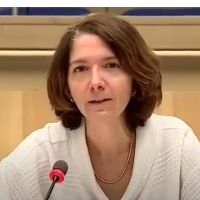 Dr Gina Samaan
Dr Gina Samaan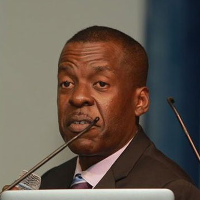 Dr Peter Nsubuga
Dr Peter Nsubuga Tyler A. Porth
Tyler A. Porth November 7, 2023 12:05
November 7, 2023 12:05Sub-theme: Non Communicable Diseases, Injuries, Mental Health & Vector Borne and Neglected Tropical Diseases
Moderator: Dr. Mohammed A. Vandi
Evaluators: Dr John Kamulegaya / Godfrey Kayita
12:05 - 12:15: OP29: Analysis of data from Niger’s National Cancer Registry from 2010 to 2018
Presenter: Moussa Ahamadou
12:15 - 12:25: OP190: Factors associated with hypertension among Persons Living with HIV in Mombasa County, Kenya
Presenter: Faith Nthoki Mudachi
12:25 - 12:35: OP488: Prevalence of cardiovascular emergencies and associated factors: case of the emergency department of the National Hospital of Niamey- Niger, February to March 2020
Presenter: Fatoumata Mounkaila Issa
12:35 - 12:45: OP504: Prevalence and Risk Factors of Hypertension among Adults in Tanga Region in January, 2023: A Cross-Sectional Community Based Survey
Presenter: Sephord Saul Ntibabara
12:45 - 13:00: Questions and Answers
 November 7, 2023 12:05
November 7, 2023 12:05Sub-theme: Non Communicable Diseases, Injuries, Mental Health & Vector Borne and Neglected Tropical Diseases
Moderator: Emily Barigye Atuheire
Evaluators: Nestor Noudeke / Amir Juya
12:05 - 12:15: OP152: Malaria Outbreak investigation and Report-wama cluster of Mana sibu Woreda, Ethiopia, October 2020
Presenter: Sahilu Tesfaye Weyessa
12:15 - 12:25: OP227: Adherence to Malaria Treatment Guidelines in Health Facilities in Kenya, 2022
Presenter: Fredrick Ouma
12:25 - 12:35: OP244: Evaluation of Malaria Surveillance System in Mozambique, 2017–2021
Presenter: Mário Avelino Malunga
12:35 - 12:45: OP598: Malaria outbreak investigation in Katima Mulilo District, Zambezi region, 14 – 25 March 2022
Presenter: Maria Nuusiku Angala
12:45 - 13:00: Questions and Answers
 November 7, 2023 12:05
November 7, 2023 12:05Sub-theme: Non Communicable Diseases, Injuries, Mental Health & Vector Borne and Neglected Tropical Diseases
Moderator: Marianne Laurant Comlan
Evaluators: Gildo Okure / Joseph Frimpong
12:05 - 12:15: OP554: Health insurance financing and patient retention in care at diabetics and hypertension clinics in Dar es Salaam and Pwani regions, Tanzania
Presenter: Harrieth Mathias Manisha
12:15 - 12:25: OP668: Factors associated with complications among Diabetes Mellitus cases in Kitui County Referral Hospital Diabetic Clinic, Kenya from June 2018 —September 2018
Presenter: Diana Rose Wangari Mwaura
12:25 - 12:35: OP691: Determinants of sub-optimal glycaemic control among patients enrolled in a medicine dispensing programme in Kwazulu-Natal: A longitudinal study, 2018-2021
Presenter: Leigh Johnston
12:35 - 12:45: OP779: Who is taking Methadone in Mombasa, Kenya, 2015–2022
Presenter: Nassoro Juma Mwanyalu
12:45 - 13:00: Questions and Answers
 November 7, 2023 12:05
November 7, 2023 12:05Sub-theme: Non Communicable Diseases, Injuries, Mental Health & Vector Borne and Neglected Tropical Diseases
Moderator: Prof. Francis Antoh
Evaluators: Hanine Keita / George Akowuah
12:05 - 12:15: OP160: COVID-19-related stigma among survivors in Soroti District, Uganda, March 2020 to December 2021
Presenter: Alice Asio
12:15 - 12:25: OP888: Post COVID-19 condition among individuals hospitalised during Wave 1 and Wave 2 at Mulago National Referral Hospital and Entebbe Regional Referral Hospital, Uganda, 2020-2021
Presenter: Allan Komakech
12:25 - 12:35: OP73: Evaluation of a Sentinel Hypertension Surveillance System in Mojo, East Shewa Zone, Oromia, Ethiopia, 2022: A Concurrently Embedded Mixed Cross-Sectional Study
Presenter: Abiyie Demelash Gashe
12:35 - 12:45: OP321: Magnitude, Trends, and Seasonal Variations of Road Traffic Accidents in Ogun State, Nigeria: A Three-Year Review
Presenter: Adesoji Olatunde Odukoya
12:45 - 13:00: Questions and Answers
 November 7, 2023 13:00
November 7, 2023 13:00 November 7, 2023 14:00
November 7, 2023 14:00Moderators: Dr Kerton R. Victory
Venue: Main Auditorium
14:00 - 14:20: Dealing with Malaria Challenges in Africa: Prospects for Elimination
Presenter: Prof Fred Newton Binka
14:20 - 14:40: Overview of Research Studies Conducted on Mpox in Democratic Republic of Congo
Presenter: Prof. Placide Mbala
14:40 - 15:00: Emerging Infectious Diseases in East and Southern Africa
Presenter: Prof Kennedy Njenga
 Prof Fred Newton Binka
Prof Fred Newton Binka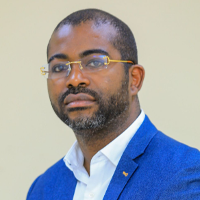 Prof. Placide Mbala
Prof. Placide Mbala Prof Kariuki Njenga
Prof Kariuki Njenga November 7, 2023 15:15
November 7, 2023 15:15Sub-theme: Public Health Emergency Preparedness, Surveillance Outbreak Investigations and Response & Antimicrobial Resistance
Moderator: Emmy Ndevaetela
Evaluators: Dr Gebru Negash / George Akowuah
15:15 - 15:25: OP31: Investigation des cas suspects de choléra dans le district sanitaire de Madarounfa, région de Maradi, Niger, 2022
Presenter: Harissou Aboubacar Aboubacar
15:25 - 15:35: OP331: Cholera Outbreak Investigation Conducted in Mwansabombwe District, Luapula Province, Zambia – January 2023
Presenter: Ante Mutati
13:35 - 15:45: OP556: Foodborne outbreak investigation at a wedding event – Batken, Kyrgyzstan, June 2022
Presenter: Timur Dautov
15:45 - 15:55: Questions and Answers
15:55 - 16:05: OP562: Salmonella enteriditis outbreak at a café - Turkestan Region, Kazakhstan, October 2022
Presenter: Saya Gazezova
16:05 - 16:15: OP616: Cholera Outbreak Resulting from Lack of Handwashing in Pitoa-Cameroon, July 2022
Presenter: Haman Djabbo Abdoul Wahhab
16:15 - 16:25: OP621: Outbreak investigation of Salmonella typhi, Simbi sector, Southern province, Rwanda: A descriptive study, November 2021
Presenter: Isabelle Teta Batanage
16:25 - 16:35: Questions and Answers
 November 7, 2023 15:15
November 7, 2023 15:15Sub-theme: Public Health Strengthening Initiative and Communicable Disease Epidemiology
Moderator: Dr Cecilia Mbae
Evaluators: Ernest Konadu Asiedu / Nestor Ndakala
15:15 - 15:25: OP19: Prevalence of Hepatitis B virus and its predictors among volunteer blood donors in Jimma, Ethiopia, 2018: A cross-sectional study
Presenter: Tesfaye Solomon Kenati
15:25 - 15:35: OP404: Profil épidémiologique des hépatites virales B et C chez les primo-donneurs de sang au Centre National de Transfusion Sanguine de Lomé de 2020-2022
Presenter: Kokou Ayamekpe
13:35 - 15:45: OP611: Prevalence of Hepatitis B Virus - Mpumalanga Province, South Africa, January 2020 - September 2022
Presenter: Sifiso Lucky Sithole
15:45 - 15:55 Questions and Answers
15:55 - 16:05: OP746: The Risk Perception of Mpox Disease Transmission Among Men Who Have Sex with Men in Rivers State, Nigeria
Presenter: Hastings Chinedu Onu
16:05 - 16:15: OP655: Determination of recency of newly diagnosed HIV cases at Malindi Sub-County Hospital, Kenya, 2021-2023
Presenter: Hellen Mulalya Masila
16:15 - 16:25: OP98: Willingness to Take Pre-Exposure Prophylaxis (PrEP) among High-Risk Young Men aged 10-24 years in Masese Fishing Community, Jinja District, Uganda
Presenter: Winnie Agwang
16:25 - 16:35: Questions and Answers
 November 7, 2023 15:15
November 7, 2023 15:15Sub-theme: Public Health Emergency Preparedness, Surveillance Outbreak Investigations and Response & Antimicrobial Resistance
Moderator: Dr Chima Ohuabunwo
Evaluators: Banda Jezreel Dabwitso / Peter Adewuyi
15:15 - 15:25: OP153: The Role of contact tracing in the timely identification of Cases in the 2022 Ebola Outbreak in Uganda Mercy Presenter: Wendy Wanyana
15:25 - 15:35: OP252: Investigation de cas de Fièvre de la Vallée du Rift au Sénégal, novembre 2021
Presenter: Ramatoulaye DIOP
13:35 - 15:45: OP473: Investigation autour d’un cas confirmé de dengue au district sanitaire de Madaoua, région de Tahoua, Niger, 2023
Presenter: Hassane Aouadé
15:45 - 15:55: Questions and Answers
15:55 - 16:05: OP538: Profil épidémiologique de la fièvre hémorragique de Lassa dans le département du Borgou de janvier 2016 à décembre 2021 au Bénin
Presenter: François DADIDJE
16:05 - 16:15: OP635: Epidemiological analysis of Lassa fever in Sierra Leone: A Secondary Data Analysis, 2018 to 2022
Presenter: Samuel Sama Turay
16:15 - 16:25: OP860: Time to care-seeking and factors influencing appropriate EVD care among Ebola case patients in Uganda, September to November 2022
Presenter: Rebecca Akunzirwe
16:25 - 16:35: Questions and Answers
 November 7, 2023 15:15
November 7, 2023 15:15Sub-theme: Public Health Emergency Preparedness, Surveillance Outbreak Investigations and Response & Antimicrobial Resistance
Moderator: Dr Virgil Kuassi Lokossou
Evaluators: Dr Seogo Hamadou / Hetani Mdose
15:15 - 15:25: OP156: Increasing trends of antibiotic resistance, Uganda: an analysis of National antimicrobial resistance surveillance data, 2018-2021
Presenter: Saudah Namubiru Kizito
15:25 - 15:35: OP744: Epidemiology of Multidrug-Resistant Enterobacteriaceae among Patients with Wound Infections in Ibadan, Nigeria
Presenter: Olawale Sunday Animasaun
13:35 - 15:45: OP763: Molecular Characterization and Resistance Pattern of Carbapenemase-Producing Klebsiella pneumoniae from Clinical Specimens at Federal Medical Centre, Keffi-Nasarawa State, Nigeria 2023
Presenter: Benson Igoche Omaiye
15:45 - 15:55: Questions and Answers
15:55 - 16:05: OP550: Retrospective cohort study of factors associated with non-initiation of antiretroviral therapy among adults newly diagnosed with HIV in Andijan, Uzbekistan, 2018-2021
Presenter: Shokhruh Usmanov
16:05 - 16:15: OP589: Etiology, antimicrobial susceptibility patterns and factors associated with bacteriuria among HIV-infected women attending prevention of mother to child transmission clinic at Bukoba Municipality, Tanzania, 2022
Presenter: Eustadius Kamugisha Felician
16:15 - 16:25: OP54: Predictors of positivity yield among HIV index contacts in Harare and Matabeleland South provinces, Zimbabwe, 2022
Presenter: Hamufare Dumisani Mugauri
16:25 - 16:35: Questions and Answers
 November 7, 2023 19:00
November 7, 2023 19:00Venue: PrideInn Paradise Hotel and Spa, Main plenary hall
Host: Stephanie Maseki
This evening is dedicated to celebrating the different and vibrant cultures that make up our Network. It gives delegates an opportunity to embrace and share their cultural heritage, fostering understanding and appreciation for the unique backgrounds that make our organisation a diverse and vibrant community.
The cultural highlight and focus of this evening will be Kenya, our host, and will be showcased through the decoration, cuisine, entertainment and a host of other ways you will surely enjoy.
In that regard, we are requesting new delegates to wear any outfits in the Kenya colors; Black, Red, Green and White.
 November 8, 2023 08:00
November 8, 2023 08:00Sub-Theme: Maternal Reproductive and Child Health, Vector Borne and Neglected Tropical Diseases, & Vaccine Preventable Diseases
Moderator: Gerald Shambira
Evaluators: Tsitsi Juru / Ally Husseni
8:00 - 8:10: OP868: Sexual and Gender-Based Violence among Adolescent Girls and Young Women during the Main COVID-19 Period, Eastern Uganda
Presenter: Patience Mwine
8:10 - 8:20: OP859: Factors associated with Black Water Fever among children with severe malaria in Kakumiro District, Western Uganda, February- August 2022
Presenter: Helen Nelly Naiga
8:20 - 8.:30: OP702: Realizing sexual and reproductive health and rights of adolescent girls and young women through comprehensive SRHR approaches in Eastern Uganda, Buyende District: a quantitative study
Presenter: Martha Zalwango
8:30 - 8:40: OP456: Investigation d’une épidémie de Diphtérie dans le District Sanitaire de Tesker, région de Zinder, Niger, 2022
Presenter: Issiakou Aboubakar Gandou
8:40 - 8:50: OP370: Evaluation du système de surveillance des décès néonatals dans le département de l’Ouémé, Bénin, de juillet 2021 à juin 2022
Presenter: Augusta Akouènon ADANVE
8:50 - 9:00: OP357: Facteurs associés à l’échec du traitement préventif intermittent du paludisme à la sulfadoxine – pyriméthamine chez les gestantes dans la maternité du centre hospitalier de Kingasani, Kinshasa, République Démocratique du Congo, janvier à novembre 2022
Presenter: Elie Kazadi Tshilumba
9:00 - 9:15: Questions and Answers All
 November 8, 2023 08:00
November 8, 2023 08:00Sub-Theme: Maternal Reproductive and Child Health, Vector Borne and Neglected Tropical Diseases, & Vaccine Preventable Diseases
Moderator: Gildo Okure
Evaluators: Tsitsi Juru / Ally Husseni
8:00 - 8:10: OP805: Malaria surveillance data analysis in the Kintampo North Municipality, Bono East Region, Ghana, 2023
Presenter: Isaac Baffoe-Nyarko
8:10 - 8:20: OP661: Evaluation of the Entomological Surveillance System of Vector Density, Province of Nampula/Mozambique, 2017 to 2021
Presenter: Raúl Duarte Namburete
8:20 - 8:30: OP633: Malaria Knowledge Among Women of Reproductive Age – Tete Province, Mozambique, 2019-2020
Presenter: Gerson Afai
8:30 - 8:40: OP486: Référence des cas de paludisme grave et facteurs associés à la létalité chez les enfants de moins de 5 ans dans les hôpitaux publics de l’Alibori au Benin du 01er avril au 31 octobre 2022
Presenter: Zoubérou Bio Béri
8:40 - 8:50: OP304: Référence des cas graves de paludisme et facteurs associés à la létalité chez les enfants de moins de cinq ans, département du Borgou, 1er avril au 31 octobre 2022
Presenter: François DADIDJE
8:50 - 9:00: OP553: Investigation of an upsurge of bacterial meningitis cases in Northern Bahr-El-Ghazal State, South Sudan, January-July 2022
Presenter: Thomas Dugan Guot
9:00 - 9:15: Questions and Answers
 November 8, 2023 08:00
November 8, 2023 08:00Sub-Theme: Maternal Reproductive and Child Health, Vector Borne and Neglected Tropical Diseases, & Vaccine Preventable Diseases
Moderator: Dr Husien Abukari Muhiadin
Evaluators: Daniel Kadobera / Lydia Nakiire
8:00 - 8:10: OP845: Epidemiological analysis of acute flaccid paralysis surveillance data following three polio outbreaks – Western Region, Ghana, 2022
Presenter: Dennis Jubin
8:10 - 8:20: OP424: Investigation de l’Epidemie de Rougeole dans le District Sanitaire du Golfe, Togo, Février 2022
Presenter: Kokouvi Gamadé Dégué
8:20 - 8:30: OP267: Evaluation du système de surveillance de la rougeole, Dubréka, Août 2021
Presenter: Soumah Naby Mariama
8:30 - 8:40: OP39: Investigation de cas de Paralysies Flasques Aigues non poliomyélitique au niveau des sites d’orpaillages traditionnels du district sanitaire de Kédougou en juin 2021
Presenter: (Sénégal) Fodé Danfakha
8:40 - 8:50: OP545: Effect of corona virus disease 2019 pandemic on turnaround time for laboratory testing of measles samples, South Sudan, 2020-2021
Presenter: Manuela Alphonse
8:50 - 9:00: OP265: Profil épidémiologique des cas de Paralysie Flasque Aiguë (PFA) dans le département du Zou, Bénin de 2017-2021.
Presenter: Tognissè Edgar Raoul Assogbakpè
9:00 - 9:15: Questions and Answers
 November 8, 2023 08:00
November 8, 2023 08:00Sub-Theme: Maternal Reproductive and Child Health, Vector Borne and Neglected Tropical Diseases, & Vaccine Preventable Diseases
Moderator: Dr Blaise Guezo-Mevo
Evaluators: Fred Odhiambo / Dr Abade Ahmed
8:00 - 8:10: OP771: Cholera outbreak investigation, Gauteng Province, South Africa, February – March 2023: Re-emerging Public Health problem
Presenter: Nchucheko Makhubele
8:10 - 8:20: OP835: Schistosomiasis surveillance system evaluation in Awutu Senya East Municipality, Central Region, Ghana
Presenter: Seth Baffoe
8:20 - 8:30: OP762: Evaluation of Schistosomiasis (Bilharzia) Surveillance System at Ehlanzeni district, Mpumalanga province, 2020-2022
Presenter: Ntombizodwa Madalane
8:30 - 8:40: OP323: Investigation d’une épidémie de shigellose dans l’aire de santé Prison, zone de santé Mweneditu, Lomami, République Démocratique du Congo, Octobre 2022
Presenter: Erick Tshibanda Mulangu
8:40 - 8:50: OP676: Schistosomiasis Outbreak Investigation in Essuekyir, Ghana, January 2023
Presenter: Grace Adjoa Ocansey
8:50 - 9:00: OP374: Profil épidémiologique des données de décès néonatals de 2018 à 2021 dans le département de l’Ouémé au Bénin
Presenter: Augusta Akouènon ADANVE
9:00 - 9:15: Questions and Answers
 November 8, 2023 09:20
November 8, 2023 09:20Sub-Theme: Vector Borne Disease and Neglected Tropical Diseases
Moderator: Dr Barnabe Gningue
Evaluators: Davis Ashaba / Joseph Magoola
9:20 - 9:25: PP125: Distribution of Anopheles stephensi and Malaria prevention practice among travellers in areas of high human population movement along Ethio-Djibouti border: mixed research design, 2022
Presenter: Fentahun Agegnehu Worku
9:25 - 9:30: PP229: Descriptive Analysis of Malaria Cases, Okavango District, Botswana-2023
Presenter: Priscilla Malibo
9:30 - 9:35: PP269: Malaria outbreak investigation, Selebi-Phikwe district, Botswana, February 2023
Presenter: Gabobofane Maphakwane
9:35 - 9:40: PP325: Evaluation of distribution of Insecticide Treated Nets for Malaria prevention in Chikwawa District, Malawi, 2021/2022
Presenter: Wamaka Blessings Msopole
9:40 - 9:45: PP417: Effectiveness of indoor residual spray on malaria control; a review of the malaria cases among children under five years in Rachuonyo North Sub County, Homa Bay County, Kenya
Presenter: Gabriel Kotewas
9:45 - 10:00: Questions and Answers
10:00 - 10:05: PP521: Investigation d’une flambée de lésions cutanéomuqueuses suspectes de leishmaniose dans la sous-préfecture de Grimari en RCA, janvier 2023
Presenter: Auguste Odilon Kpahina
10:05 - 10:10: PP593: Schistosomiasis outbreak among leaners at Omindamba Combined school, Outapi district, Omusati region, Namibia, August 2022
Presenter: Gebhard Panduleni Ndyaleka
10:10 - 10:15: PP784: The Impact of Neglected Tropical Diseases Expenditure on Onchocerciasis Treatment Outcomes in Nigeria, 2000-2021
Presenter: Bernsah Damian Lawong
10:15 - 10:20: PP620: Pilot Serological and Molecular Survey for Dengue and other Arboviruses’ Infection in Acute Febrile Patients in Yenagoa Bayelsa State, Nigeria
Presenter: Dayo Olufemi Akanbi
10:20 - 10: 25: PP400: Performance de la lutte contre le paludisme chez les enfants de moins de 5 ans dans le district sanitaire de Tchaoudjo au Togo de 2019 à 2021
Presenter: Kossivi AHE
10:25 - 10:30: PP594: A confirmed human dracunculiasis case in Lafon County, Eastern Equatoria State, South Sudan, August 2022
Presenter: William Jenaro Okere
10:30 - 10:45: Questions and Answers
 November 8, 2023 09:20
November 8, 2023 09:20Sub-Theme: Vector Borne Disease and Neglected Tropical Diseases
Moderator: Issaka Tiembre
Evaluators: Mamadou Sarifou Ba / Pierre Wilnique
9:20 - 9:25: PP483: Référence des cas de paludisme grave et facteurs associés à la létalité chez les enfants de moins de 5 ans dans les hôpitaux de zone de Tanguiéta et de Kouandé du 01er avril au 31 octobre 2022
Presenter: Gally Akoakpo Djaboutou
9:25 - 9:30: PP828: Caractéristique épidémiologique des décès maternels de janvier 2018 à juin 2022 dans le département du Couffo, Bénin
Presenter: Nestor Sossoukpè
9:30 - 9:35: PP880: Descriptive Analysis of Malaria cases, Masaka Region, Uganda, January - December 2022
Presenter: Gertrude Abbo
9:35 - 9:40: PP467: Malaria Data analysis in Kibilizi subdistrict, Southern province, Rwanda, 2022
Presenter: Alice Musabyeyezu
9:40 - 9:45: PP128: Coverage and Factors associated with Utilization of Pyrethroid-Piperonyl Butoxide treated nets in a Malaria Endemic Region, Western Kenya
Presenter: Stephen Aricha
9:45 - 10:00: Questions and Answers
10:00 - 10:05: PP660: Profil épidémiologique du paludisme à Betafo, région Vakinankaratra, Madagascar, 2022
Presenter: Lina Zafindraibe HERISOANJANAHARY
10:05 - 10:10: PP580: Référence des cas de paludisme grave et facteurs associés à la létalité chez les enfants de 0 à 59 mois dans les hôpitaux publics de l’Ouémé au Bénin en 2022
Presenter: Augusta Akouènon ADANVE
10:10 - 10:15: PP741: Trends in Malaria reports from the Malaria Parasite Sentinel Surveillance in Nigeria, January 2017- May 2018
Presenter: Wudi Natasha Tanko
10:15 - 10:20: PP740: Surveillance data analysis of under-5-year malaria cases amidst malaria Control interventions in the Tamale Metropolis, 2017 – 2021
Presenter: Shahadu Shembla
10:20 - 10:25: PP690: Surveillance Data Analysis of Uncomplicated Malaria in Pregnancy in Ablekuma North Private Health Facilities, Ghana 2017- 2021
Presenter: Thelma Teley Aphour
10:25 - 10:30: PP396: Increasing stockouts of critical malaria commodities in public health facilities in Uganda, 2017-2022
Presenter: Jane Frances Zalwango
10:30 - 10:45: Questions and Answers
 November 8, 2023 09:20
November 8, 2023 09:20Sub-Theme: Vector Borne Disease and Neglected Tropical Diseases
Moderator: Mr Samuel Assegid
Evaluators: Maria Nunga / Banda Jezreel Dabwitso
9:20 - 9:25: PP322: The Role of Eating Out and Physical Contact with a Patient in Cholera Transmission in Salima District, Malawi October 2022
Presenter: Wamaka Msopole
9:25 - 9:30: PP457: Investigating Cholera Outbreak in Nyamasheke District, Rwanda from 20th February to 09th March, 2023
Presenter: Solange NYINAWABEZA
9:30 - 9:35: PP528: Cholera outbreak among internally displaced people in Bentiu Camp, Unity State, South Sudan, March-October 2022
Presenter: Agnes Jokudu Nathaniel
9:35 - 9:40: PP749: Cholera in the era of Covid-19-Pandemic: A Positive Trend in Volta Region 2017-2022, Ghana
Presenter: Wisdom Kwame Klenyuie
9:40 - 9:45: PP787: Cholera outbreak investigation in Malakal County, Upper Nile State, South Sudan, February-March 2023
Presenter: Joesph Hickson Lasu
9:45 - 10:00: Questions and Answers
10:00 - 10:05: PP239: Profil épidémiologique et facteurs associés aux diarrhées à Rotavirus, centre hospitalier régional de Gaoua, Burkina Faso, de 2013 à 2022
Presenter: Wendkouni Serge Alain Tougma
10:05 - 10:10: PP666: Evaluation of the Diarrheal Disease Surveillance System, Nampula-Mozambique, 2019-2020
Presenter: Beatriz Felicidade Nhantumbo
10:10 - 10:15: PP272: Laboratory Surveillance of Diarrhoeal Etiologic Agents, Lobatse, November 2022
Presenter: Chika Merilyn Olorato
10:15 - 10:20: PP817: Profil épidémiologique du choléra dans le département de l’Atlantique de 2017-2021, Bénin
Presenter: Balikissou Méyissehoue Gnonlonfin
10:20 - 10:25: PP549: Food Poisoning Outbreak Investigation at Ecole Agricole et Veterinaire (EAV) Kabutare High School, Huye District of Rwanda - June 2022
Presenter: Albert Busumbigabo
10:25 - 10:30: PP766: Foodborne disease outbreak investigation at a community hall in Soweto, Gauteng Province, South Africa, October 2022
Presenter: Naledi Mapitja
10:30 - 10:45: Questions and Answers
 November 8, 2023 09:20
November 8, 2023 09:20Sub-Theme: Vector Borne Disease and Neglected Tropical Diseases
Moderator: Dr Hamet Ba
Evaluators: Dr Peter Adewuyi / Khuliso Ravhuhali Goodman
9:20 - 9:25: PP117: Assessing compliance to Tuberculosis/HIV standards of care through clinical audits at referral hospitals in Uganda
Presenter: Veronica Kembabazi
9:25 - 9:30: PP310: Epidemiological Profile and Treatment outcome of tuberculosis cases at Moyamba District, Sierra Leone, 2023: A retrospective study
Presenter: Joseph. Sam
9:30 - 9:35: PP315: Analysis of Tuberculosis Laboratory Data, Southeast district, Botswana, September 2022
Presenter: Ketshepaone Herry
9:35 - 9:40: PP445: Positivity rate of Pulmonary Tuberculosis among people Living with Human Immunodeficiency Virus attending Kibungo Referral Hospital, Ngoma District-Rwanda 2020-2021
Presenter: Shaban Havugimana
9:40 - 9:45: PP499: Profil épidémiologique de la tuberculose multi-résistante à Kinshasa de janvier 2016 à décembre 2021
Presenter: Yannick EBENGO
9:45 - 10:00: Questions and Answers
10:00 - 10:05: PP865: Adoption of eHealth for community monitoring of HIV/TB services and its predictors among NGO staff in Kampala Uganda
Presenter: Isabella Wanadi Kisa
10:05 - 10:10: PP512: Mortality trend and associated factors among HIV clients on antiretroviral therapy in Tanzania from 2018-2020
Presenter: Albert Paschal
10:10 - 10:15: PP778: Characterization of adult HIV cases in Maragua Sub County Hospital, Murang’a County, Kenya in 2021-A cross sectional retrospective study.
Presenter: David Gitau
10:15 - 10:20: PP679: onitoring and improving turn-around time of HIV molecular testing in Angola
Presenter: Ana Sofia Pinheiro
10:20 - 10:25: PP605: Survival and predictors of mortality among multidrug resistant Tuberculosis patients after decentralization of services in Tanzania from 2017-2019
Presenter: George Mrema
10:25 - 10:30: PP585: Evaluation of Multidrug Resistance Tuberculosis Surveillance System: Sierra Leone, 2020 – 2022
Presenter: Samuel Sao Bailor
10:30 - 10:45: Questions and Answers
 November 8, 2023 10:45
November 8, 2023 10:45 November 8, 2023 11:15
November 8, 2023 11:15Moderators: Dr Carl Reddy
Venue: Main Auditorium
11:15 - 11:35: Strengthening IPC in African Health Systems towards Global Health Security
Presenter: Prof Adebola Olayinka
11:35 - 11:55: Global Health Security Agenda in the Post-Covid-19 Era
Presenter: Dr. Kerton R. Victory
11:55 - 12:15: Global Health Security Agenda, Kenya Perspective
Presenter: Dr Penina Munyua
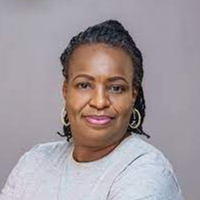 Prof Adebola Olayinka
Prof Adebola Olayinka Dr. Kerton R. Victory
Dr. Kerton R. Victory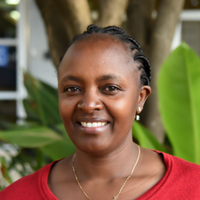 Dr Penina Munyua
Dr Penina Munyua November 8, 2023 12:40
November 8, 2023 12:40 November 9, 2023 08:00
November 9, 2023 08:00Sub-theme: Maternal Reproductive and Child Health
Moderator: Dr Alex Ario Riolexus
Evaluators: Dr Moreen Kamateeka / Celestine Ameh
8:00 - 8:05: PP289: Sierra Leone Reducing Maternal Mortality in the last five years, 2016 – 2021: A secondary data analysis on MDSR System
Presenter: Zainab JuhehBah
8:05 - 8:10: PP387: Facteurs associés à la létalité du paludisme grave chez les enfants de moins de 5 ans dans les hôpitaux publics du Bénin du 01 avril au 31 octobre 2022
Presenter: Nestor Sossoukpè
8:10 - 8:15: PP582: Maternal Mortality Surveillance System Evaluation, The Gambia, 2022
Presenter: Abdoulie Sonko
8:15 - 8:20: PP651: Review of Teenage Pregnancy in Erongo Region, Namibia 2013 – 2018: A Descriptive Study
Presenter: Ndeshihafela Sakaria
8:20 - 8:30: Questions and Answers
8:30 - 8:35: PP522: Neonatal mortality and associated factors at the Western Province Hospital in Rwanda; A facility based cross-sectional study, 2019-2021
Presenter: Christophe Nkundabaza
8:35 - 8:40: PP531: Causes and trends of stillbirth deliveries, Aberdeen Women's Centre, Freetown, Sierra Leone, 2017-2020: A case study of a health facility
Presenter: Lilian Kumba Admire-Taylor
8:40 - 8:45: PP575: Risk Factors associated with delivering Low Birth Weight Infants at Oshakati Intermediate Hospital, Oshana region, Namibia – September to November 2020
Presenter: Roswitha Mukanga Ndjengwa
8:45 - 8:50: PP135: Facteurs associés aux mortinaissances dans le district sanitaire de Pô, région du Centre-Sud, Burkina Faso, juillet 2022
Presenter: Boureima Kouraogo
8:50 - 9:00: Questions and Answers
 November 9, 2023 08:00
November 9, 2023 08:00Sub-theme: Maternal Reproductive and Child Health
Moderator: Dr Jean Medard Kankou
Evaluators: Ernest Kateule / Mamadou Sarifou Ba
8:00 - 8:05: PP656: Evaluation of comprehensive post-abortion services surveillance system at Dodoma region, Tanzania from January to March 2023
Presenter: Jonhas Masatu Malija
8:05 - 8:10: PP796: Understanding newborn care practiced by mothers in Mukono district Uganda,2022
Presenter: Annet Mary Namusisi
8:10 - 8:15: PP704: Why mothers die during maternal delivery and pregnancy-related complications? Secondary data analysis of maternal death data from Falaba District, Sierra Leone, 2018 to 2022
Presenter: Jusu Musa
8:15 - 8:20: PP808: Profil épidémiologique des décès maternels à la Maternité de référence Dar-El Hanan, Djibouti, 2012-2018
Presenter: Sahra Moussa Bouh
8:20 - 8:30: Questions and Answers
8:30 - 8:35: PP707: Delivery Outcome among Women who delivered in Regional Hospitals, January 2021 To December 2022 Sierra Leone
Presenter: Musu Rachael Cole
8:35 - 8:40: PP101: Seroprevalence of Toxoplasmosis and Rubella in Pregnant Women from Antenatal Clinic in Ibadan (Nigeria) And Bamako (Mali)
Presenter: Mazo Koné
8:40 - 8:45: PP218: Evaluation of the adherence of healthcare workers to Prenatal care standards in the context of free care program in Burkina Faso
Presenter: Satouro Arsene SOME
8:45 - 8:50: PP800: Factors Associated with Depression Symptoms among pregnant Adolescent Girls and Young Women at Kawempe National Referral Hospital, Uganda
Presenter: Henry Kiiza
8:50 - 9:00: Questions and Answers
 November 9, 2023 08:00
November 9, 2023 08:00Sub-theme: HIV/AIDS, Tuberculosis and Other Infectious Diseases
Moderator: Dr Hanitriniala Sahondranirina
Evaluators: Cephas Sialubanje / Ndeta Caren
8:00 - 8:05: PP164: Increasing HIV Incidence in Southwest Ethiopia: Evidence from Case-Based Surveillance Data 2019-2022
Presenter: Nigatu Admasu Desta
8:05 - 8:10: PP245: Increased vulnerability to HIV infection among key populations during the COVID-19 emergency, Mozambique 2022, Formative-Assessment
Presenter: Hélder Filipe Fumo
8:10 - 8:15: PP418: Achieving the 95-95-95 fast track targets: HIV care and treatment cascade, Zimbabwe, 2021: a secondary data analysis
Presenter: Ernest Tsarukanayi Mauwa
8:15 - 8:20: PP435: Evaluation of HIV Surveillance System within the Prevention of Mother to Child Transmission Program, Western Area Urban District, Sierra Leone, 2022
Presenter: Saidu Heisenberg Mansaray
8:20 - 8:30: Questions and Answers
8:30 - 8:35: PP437: Predictors of time to viral load suppression in young people in Gwanda District, Zimbabwe 2021
Presenter: Mutizwa Thomas Mupedziswa
8:35 - 8:40: PP450: Assessment of Nutritional Status among Children Living with HIV in Kibuye Referral Hospital Catchment Area, Karongi district - Rwanda, January-November 2022
Presenter: Jean Pierre BUCYANAYANDI
8:40 - 8:45: PP533: Prevalence and predictors of detectable viral-load among HIV clients on Ant-retroviral therapy in Kagera region Tanzania
Presenter: Albert Paschal
8:45 - 8:50: PP884: Trends in HIV Differentiated Service Delivery Model utilization among children and adolescents in Uganda, 2020-2022
Presenter: Rebecca Akunzirwe
8:50 - 9:00: Questions and Answers
 November 9, 2023 08:00
November 9, 2023 08:00Sub-theme: Non Communicable Diseases Injuries and Mental Health
Moderator: Dr Cynthia Baltazaar
Evaluators: Khuliso Ravhuhali Goodman / Tsitsi Juru
8:00 - 8:05: PP149: Five years of hypertension descriptive data analysis at Merawi primary hospital, West Gojjam Zone, Amhara Regional State, Ethiopia, 2018 –2022
Presenter: Henok Abere Ali
8:05 - 8:10: PP243: Prevalence of Substance use disorder and associated risk factors among mental health patients at the Edward Snoh Grant’s Mental Health Hospital, Liberia, 2021
Presenter: Emmanuel Dwalu
8:10 - 8:15: PP420: Épidémiologie et Facteurs d’Exposition des Cardiopathies Congénitales au Service de Pédiatrie du Centre Hospitalier Universitaire Campus de Lomé de 2017 à 2022
Presenter: Yamdi Kanou
8:15 - 8:20: PP434: Clinico-epidemiological characteristics of Road Traffic injuries presenting at the Trauma Centre of Connaught Teaching Hospital, Sierra Leone, 2020-2022
Presenter: Isata Theresa Kamara
8:20 - 8:30: Questions and Answers
8:30 - 8:35: PP613: “Prevalence and predictors of hypertension among screened population in Rwanda: A cross-sectional study, 2021 to 2022”
Presenter: Isabelle Teta Batanage
8:35 - 8:40: PP641: Evaluation of Dodoma cervical cancer population based surveillance system at Dodoma Tanzania, January to December 2022.
Presenter: Godbless Henry Mfuru
8:40 - 8:45: PP769: Quality of Management for Adult Hypertensives Attending Rural and Urban Primary Health Centers in Oyo State, Nigeria, July 2021: A Comparative Study
Presenter: Olugbenga Adeola Odukanmi
8:45 - 8:50: PP789: Prevalence and Factors Associated With Non-Adherence to Diabetes Treatment among Adult Patients in Care at Jinja Regional Referral Hospital
Presenter: Enock Kukiriza
8:50 - 9:00: Questions and Answers
 November 9, 2023 09:05
November 9, 2023 09:05Sub-theme: Public Health Emergency Preparedness, Surveillance Outbreak Investigation and Response
Moderator: Dr John Rumunu
Evaluators: Banda Jezreel Dabwitso /Ernest Kondadu Asiedu
9:05 - 9:15: OP134: Investigation d’un cas rare de rage bovine dans une ferme à Loumbila, Burkina Faso, mai 2022
Presenter: Aristide Compaoré
9:15 - 9:25: OP393: Investigation d’une flambée de conjonctivite à l’école de Garsale-Daba, Région de Dikhil/ Djibouti, janvier 2022
Presenter: Abdi Houssein Egueh
9:25 - 9:35: OP454: Evaluation of food poisoning surveillance system in Kirehe District of Eastern Province in Rwanda, October 2022
Presenter: Philbert RUGIRANGOGA
9:35 - 9:45: OP484: Investigation autour d’un phénomène anormal à Kpo-kahankro, district Bouaké Sud, Gbêkê, Côte d’Ivoire, décembre 2022-janvier 2023
Presenter: Jean Louty Diomande
9:45 - 9:55: OP752: Paederus dermatitis (Nairobi fly) outbreak investigation in momona IDP Mekelle, Tigray, Ethiopia- October 2021
Presenter: Amanuel Solomon
9:55 - 10:10: Questions and Answers
 November 9, 2023 09:05
November 9, 2023 09:05Sub-theme: Public Health Emergency Preparedness, Surveillance Outbreak Investigation and Response
Moderator: Dr Cecilia Mbae
Evaluators: James Zulu / Magdalene Odikro
9:05 - 9:15: OP287: Investigation of Contagious Bovine Peripneumonia cases in a beef herd in Bougouni, Mali, December 2020
Presenter: Ousmane Boua Togola
9:15 - 9:25: OP293: Investigation des cas suspects de Peste de Petits Ruminants (ovine et caprine) dans le District de Bankilaré, Région de Tillabéri, Niger, janvier 2022
Presenter: Hamissou Inoussa Hassane
9:25 - 9:35: OP470: Perception of Rapid SMS users in Promoting Community Health in Huye district, 2021
Presenter: Kizito Habakurama
9:35 - 9:45: OP517: Investigation des cas de Brucellose dans la région d’Obock, Djibouti, Novembre 2021
Presenter: Oudoum Kamil Aboubaker
9:45 - 9:55: OP882: Gastrointestinal anthrax outbreak investigation in Ibanda District, Southwestern Uganda, August, 2022
Presenter: Patrick King
9:55 - 10:10: Questions and Answers
 November 9, 2023 09:05
November 9, 2023 09:05Sub-theme: Public Health Emergency Preparedness, Surveillance Outbreak Investigation and Response, Non Communicable Diseases, Injuries and Mental Health
Moderator: Dr Raphael Mbailao
Evaluators: Dr Sherry Johnson / Dr Dora Dadzie
9:05 - 9:15: OP99: Pesticide exposure and associated acute health effects among smallholder farmers in Mbale District, Eastern Uganda, August 2020
Presenter: Elizabeth Muhumuza
9:15 - 9:25: OP142: Spatio–temporal trends of air quality, Kampala City, Uganda, 2020–2022
Presenter: Mackline Ninsiima
9:25 - 9:35: OP215: Etude des facteurs associés à la vaccination contre le Human Papillomavirus chez les filles de 9 à 13 ans scolarisées dans le district sanitaire de Médina Yoro Foulah (Sénégal) en 2022
Presenter: Matar Ndiaye
9:35 - 9:45: OP757: Determination of Dioxin Level in Cattle Hide Processed Using Different Fuel Sources for Human Consumption in Sokoto Central Abattoir, Sokoto, Nigeria
Presenter: Zakariyau Umar
9:45 - 9:55: OP206: Strengthening Capacity at Points of Entry: An Evaluation of the Harmonized Curriculum for the ECOWAS Region
Presenter: Aishat Bukola Usman
9:55 - 10:10: Questions and Answers
 November 9, 2023 09:05
November 9, 2023 09:05Sub-theme: Public Health Emergency Preparedness, Surveillance Outbreak Investigation and Response, Non Communicable Diseases, Injuries and Mental Health & Vaccine Preventable Diseases
Moderator: Dr Olivia Namusisi
Evaluators: Doreen Ganahasa / Mbouna Ndiaye
9:05 - 9:15: OP225: A Journey Towards a Responsive HIV Viral Load Monitoring System in Kenya, 2023
Presenter: Grace Rabut
9:15 - 9:25: OP339: Aspects épidémiologiques et thérapeutiques de la Tuberculose Multi Résistante chez l’enfant à Kinshasa, République Démocratique du Congo, 2017-2022
Presenter: Nicole Muzutie Anshambi
9:25 - 9:35: OP597: Investigation d’une épidémie de rougeole dans le camps de réfugiés de la wilaya de Hodh charghi, Mauritanie, 2023
Presenter: LAM Mariata
9:35 - 9:45: OP581: Uptake and associated factors of Cervical Cancer Screening Services among Women attending Reproductive and Child Health Clinic in Dodoma Municipal Council, Tanzania from 1st March to 30th April 2022
Presenter: Omary Nassoro
9:45 - 9:55: OP913: Characterizing general population participation in COVID-19 response measures: Liberia population-based SARS-CoV-2 seroprevalence study 2023 preliminary findings
Presenter: Faith Kamara Whesseh
9:55 - 10:10: Questions and Answers
 November 9, 2023 10:10
November 9, 2023 10:10 November 9, 2023 10:40
November 9, 2023 10:40Moderators: Dr Kip Baggett
Venue: Main Auditorium
10:40 - 11:05: Mobilizing monetary and nonmonetary resources to strengthen health systems in Africa within the challenges of health security
Presenter: Dr Ebere Okereke
11:05 - 11:30: Attaining the Triple Billion-The Role of Healthcare Financing towards Universal Health Coverage
Presenter: Mr Raphael Sekpeb
11:30 - 11:50: Universal Healthcare Coverage Programme in Kenya
Presenter: Dr Daniel Langat
11:50 - 12:10: Africa CDC Strategy for tackling Mental Health Challenges in Africa
Presenter: Dr Abdulaziz Mohammed
12:10 - 13:00: Panel Discussion: Contribution of Women to Public Health in Africa
Presenter: Panelists
 Dr Ebere Okereke
Dr Ebere Okereke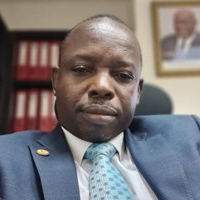 Mr Raphael Sekpeb
Mr Raphael Sekpeb Dr Daniel Langat
Dr Daniel Langat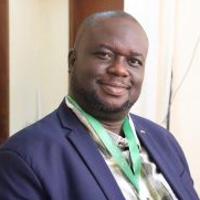 Dr Abdulaziz Mohammed
Dr Abdulaziz Mohammed November 9, 2023 13:00
November 9, 2023 13:00 November 9, 2023 14:00
November 9, 2023 14:00Moderators: Dr Cynthia Baltazaar
Venue: Main Auditorium
14:00 - 14:20: Building a One-Health Workforce for Enhanced Global Health Security
Presenter: Prof William Bazeyo
14:20 - 14:40: Linking Field Epidemiology to Laboratory Biosafety and Biosecurity-Going Beyond the Cause of Outbreaks to the Intention
Presenter: Prof Elizeus Rutebemberwa
14:40 - 15:00: Global Fund pandemic Preparedness Initiatives
Presenter: Dr David Lowrance
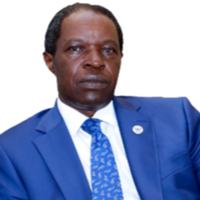 Prof William Bazeyo
Prof William Bazeyo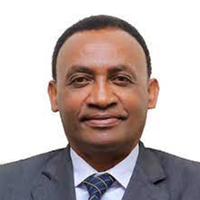 Prof Elizeus Rutebemberwa
Prof Elizeus Rutebemberwa Dr. Benjamin Park
Dr. Benjamin Park November 9, 2023 15:10
November 9, 2023 15:10Sub-theme: One Health and Climate Change, HIV/TB and Other Opputunitic Infections
Moderator: Dr Seogo Hamadou
Evaluators: Irene Kyamwine / Ben Masira
15:10 - 15:15: PP853: Evaluation du système de surveillance des morsures et de la rage, Direction Préfectorale de l’Elevage de Pita, 2019-2021
Presenter: Mamadou Aliou 2 BAH
15:15 - 15:20: PP261: “Anthrax is not a mysterious disease”: Revelation from an outbreak investigation in Shinyalu, Kakamega County, Kenya, 2021
Presenter: Florence Wanjiru Mugo
15:20 - 15:25: PP477: Retrospective Rabies Exposure Cases analysis -Kicukiro District, Rwanda, 2018-2022
Presenter: Honorine Mutuyimana
15:25 - 15:30: PP497: Analyse des données de surveillance du feu de brousse survenu dans le village de Dakaré, Région de Maradi, Niger, 2021
Presenter: Aboubacar Amadou
15:30 - 15:40: Questions and Answers
15:40 - 15:45: PP246: Evaluation du système de surveillance de la rage dans la préfecture de Faranah, Septembre 2021
Presenter: Abou Sylla
15:45 - 15:50: PP677: Analyse des données de surveillance des urgences sanitaires d’origine environnementale notifiées au Centre Ivoirien antipollution, Côte d’Ivoire, 2018-2022
Presenter: Tana Pélagie ADON
15:50 - 15:55: PP539: Cutaneous human anthrax outbreak investigation in Gogrial West County, Warrap State, South Sudan, April-December 2022
Presenter: John Akol Akol
15:55 - 16:00: PP642: Profil Epidémiologique des animaux mordeurs, mis en observation pour suspicion de Rage, Régions de Nouakchott, 2022
Presenter: Abdi. Sidi
16:00 - 16:10: Questions and Answers
16:10 - 16:15: PP433: Investigation d’un cas de rage canine à Kiffa, Région d’Assaba, Mauritanie, Avril 2022
Presenter: El Yedaly Mohameden HAMED
16:15 - 16:20: PP38: Connaissances, attitudes et pratiques des communautés et des prestataires de la santé humaine dans le district sanitaire de Kédougou sur la prévention de la rage en 2022 (Sénégal).
Presenter: Fodé Danfakha
16:20 - 16:25: PP300: Investigation of a confirmed case of human rabies in the health area of Béléko, Fana, Mali, April 2022
Presenter: Youssouf Diawara
16:25 - 16:30: PP107: High Mortality from Clinical Rabies in Tigray during the Prolonged War and Deadly Siege: Call for Action
Presenter: Afewerki Tesfahunegn Nigusse
16:30 - 16:40: Questions and Answers
 November 9, 2023 15:10
November 9, 2023 15:10Sub-theme: HIV/TB and Other Opputunitic Infections, Antimicrobial Resistance and Infection Prevention and Control
Moderator: Dr. Mohammed A. Vandi
Evaluators: Adama Ndir / Patrick Mavungu
15:10 - 15:15: PP197: Improving Pre-Exposure Prophylaxis Screening and Initiation among Adolescent Girls and Young Women in Selected Health Facilities, Western Uganda; January-June 2022
Presenter: Patience Mwine
15:15 - 15:20: PP305: Has the COVID-19 pandemic affected tuberculosis control in Sierra Leone? -A retrospective secondary data analysis, 2019 – 2022
Presenter: Josephine Amie Koroma
15:20 - 15:25: PP408: Factors associated with self-discontinuation of Pre-Exposure Prophylaxis among Adolescent Girls and Young Women in Mazowe District, Zimbabwe, 2021
Presenter: Godwin Choga
15:25 - 15:30: PP340: Facteurs Associes a la Suppression de la Charge Virale Chez les Personnes Vivant Avec le Vih Sous un Regime a Base De Dolutegravir Dans la Ville De Kolwezi, Lualaba, Republique Democratique du Congo, Juin 2019 a Juin 2021
Presenter: Christian Kadianda
15:30 - 15:40: Questions and Answers
15:40 - 15:45: PP460: Sero-prevalence of transfusion-transmissible infections among blood donors in Port Loko District Government Hospital, Sierra Leone: 2020-2021
Presenter: Mbaimba Saidu Kamara
15:45 - 15:50: PP700: Achieving Viral Load Suppression Coverage in Rural Eastern Uganda, Kamuli District: an experimental study
Presenter: Tendo Rosette Nalugwa
15:50 - 15:55: PP378: Prevalence and Factors Associated with SARS-CoV-2 Among Persons Living with HIV in Six Districts-Zambia, July 2020: A secondary analysis of three concurrent SARS-CoV-2 Prevalence Surveys
Presenter: Stephen Longa Chanda
15:55 - 16:00: PP886: Assessing late presentation for HIV care among men living with HIV enrolled on Antiretroviral Therapy in Eastern Uganda, 2020
Presenter: Sherifah Nabikande
16:00 - 16:10: Questions and Answers
16:10 - 16:15: PP699: Analyse des mesures de surveillance épidémiologique du VIH/SIDA en Guinée-Bissau, de 2014 à 2021
Presenter: Mendes Dias Bawolenca Mariana
16:15 - 16:20: PP599: Evaluation of early infant diagnosis surveillance system in Otjozondjupa region, Namibia 2017- 2021
Presenter: Maria Nuusiku Angala
16:20 - 16:25: PP684: External Quality Assurance of HIV rapid testing in PEPFAR supported sites in Angola
Presenter: Euzália Botelho Tomé
16:25 - 16:30: PP693: Needle-stick and sharps-related injuries among healthcare workers at Kingharman Road Hospital, Sierra Leone, 2023
Presenter: Edward Ellie
16:30 - 16:40: Questions and Answers
 November 9, 2023 15:10
November 9, 2023 15:10Sub-theme: HIV/TB and Other Opputunitic Infections, Antimicrobial Resistance and Infection Prevention and Control
Moderator: Ellen Yard
Evaluators: Erika Rossetto / Patrick Dely
15:10 - 15:15: PP86: Antimicrobial Resistance of Bacterial Isolates, Sana’a city, Yemen 2018-2019
Presenter: Raja Mohammed Al-Haimi
15:15 - 15:20: PP441: Assessing awareness, attitude, and practices of veterinarians towards antimicrobial resistance in Bugesera District of Rwanda-January to February 2023.
Presenter: Sarah Mwera
15:20 - 15:25: PP701: An investigation of an outbreak of multidrug-resistant Acinetobacter baumannii infections in a neonatal intensive care unit at a regional hospital in KwaZulu-Natal, August 2022
Presenter: Andani Ronel Marumo
15:25 - 15:30: PP685: Assessing infection prevention and control governance structures and financing options in Rachuonyo North sub county health facilities, Homa Bay County, Kenya
Presenter: Gabriel Kotewas
15:30 - 15:40: Questions and Answers
15:40 - 15:45: PP278: Evaluation du système de surveillance des décès maternels de juillet 2021 à juin 2022 dans le département du Couffo, Bénin
Presenter: Nestor Sossoukpè
15:45 - 15:50: PP311: Evaluation du système de surveillance de la rougeole dans la zone de santé de N’djili, Kinshasa, République Démocratique du Congo, 2021 à 2022
Presenter: Fabrice Sewolo Matondo
15:50 - 15:55: PP329: Evaluation of an Electronic Case-based Disease Surveillance System in Karene District, Sierra Leone, 2022
Presenter: Eldred Moore
15:55 - 16:00: PP551: Evaluation of Rotavirus Surveillance System at Kilifi County Hospital-Kenya, 2017-2021
Presenter: Ednah Salat
16:00 - 16:10: Questions and Answers
16:10 - 16:15: PP256: Leveraging the Acute Flaccid Paralysis Surveillance System to Enhance COVID-19 Surveillance in Uganda, 2020
Presenter: Wilbrod Mwanje
16:15 - 16:20: PP330: Evaluation of the Acute flaccid paralysis surveillance system in Southern Province, Zambia, 2020-2022
Presenter: Nangoma Agness Haambote
16:20 - 16:25: PP333: Evaluation of the Acute Flaccid Paralysis (AFP) Surveillance System in Eastern Province, Zambia, 2020-2022
Presenter: Chriswell Nkoloma
16:25 - 16:30: PP544: Profil épidémiologique de la paralysie flasque aiguë, département des Collines, Bénin, 1er janvier 2016- 04 juillet 2022.
Presenter: Richard Sèfounon
16:30 - 16:40: Questions and Answers
 November 9, 2023 15:10
November 9, 2023 15:10Sub-theme: One Health and Climate Change, HIV/TB and Other Opputunitic Infections, and Infection Prevention and Control
Moderator: Dr Amadou jallow
Evaluators: Uzoma Ogbonna / Dr Vincent Mutabazi
15:10 - 15:15: PP128: Coverage and Factors associated with Utilization of Pyrethroid-Piperonyl Butoxide treated nets in a Malaria Endemic Region, Western Kenya
Presenter: Stephen Aricha
15:15 - 15:20: PP479: Référence du paludisme grave et les facteurs associés à la létalité chez les enfants de moins de 5 ans dans les hôpitaux publics du Littoral au Bénin en 2022
Presenter: Arnaud Wilfried PADONOU
15:20 - 15:25: PP403: Investigation of malaria upsurge in Indoor Residual Spraying (IRS) in four districts in Eastern Uganda, 2016─2021
Presenter: Alice Asio
15:25 - 15:30: PP490: Référence des cas de paludisme grave et facteurs associés à la létalité chez les enfants de moins de 5 ans à l’hôpital de zone de Natitingou du 01 avril au 31 octobre 2022
Presenter: Edgard Sotiré N’TCHAGABA
15:30 - 15:40: Questions and Answers
15:40 - 15:45: PP730: Use of community dialogue in malaria control social behavior change intervention among women of Mambai community unit, Vihiga County, Kenya
Presenter: Mercy Lodendwa
15:45 - 15:50: PP494: Référence des cas graves de paludisme et facteurs associés à la létalité chez les enfants de moins de cinq ans, département des Collines, Bénin, 1er avril au 31 octobre 2022
Presenter: Richard Sèfounon
15:50 - 15:55: PP140: Trends and Distribution of Severe Malaria Cases, Uganda, 2017-2021: A Descriptive Analysis of the Health Management Information System Data
Presenter: Marie Gorreti Zalwango
15:55 - 16:00: PP529: Référence des cas de paludisme grave et facteurs associés à la létalité chez les enfants de moins de cinq ans dans les hôpitaux du Mono, du 01 avril au 31 octobre 2022
Presenter: Edouard Hountohotègbè
16:00 - 16:10: Questions and Answers
16:10 - 16:15: PP75: Analyse des données de surveillance épidémiologique de la Fièvre Jaune, Burkina Faso 2017à 2021
Presenter: Ferima NIKIEMA
16:15 - 16:20: PP475: Spatial clustering, hotspot analysis and temporal distribution of the 2022 Ebola Virus Disease outbreak in Uganda
Presenter: George Paasi
16:20 - 16:25: PP552: Outbreak of Crimean-Congo hemorrhagic fever in Kyzylorda region, Kazakhstan, March-July 2022
Presenter: Malika Gabdullina
16:25 - 16:30: PP625: Establishing a Mortality Surveillance System to Boost an End to End Process of Case Identification during Sudan Virus Disease Outbreak in Masaka City, Uganda, November 10th to 25th 2022.
Presenter: Maureen Katusiime
16:30 - 16:40: Questions and Answers
 November 9, 2023 16:50
November 9, 2023 16:50Sub-theme: Public Health Emergency Preparedness, Surveillance Outbreak Investigations and Response
Moderator: Prof. Patrick Kere Maelo
Evaluators: Nestor Noudeke / Ally Husseni
16:50 - 16:55: PP46: Investigation of Covid-19 outbreak among police barracks of a state guest house, New Delhi, India, 2020
Presenter: Prasoon Sheoran
16:55 - 17:00: PP70: Severe Acute Malnutrition Outbreak Investigation at Dubti District of Awsiresu Zone, Afar Region, North Eastern Ethiopia, 2022
Presenter: Aman Yesuf Endris
17:00 - 17:05: PP756: Outbreak of Influenza (H3N2) in two senior high schools in the Eastern Region, Ghana, 2022
Presenter: Doris Aboagyewaa Edu-Quansah
17:05 - 17:10: PP155: Scabies outbreak investigation in Hoima District, Western Uganda, February–June 2022
Presenter: Rebecca Akunzirwe
17:10 - 17:20: Questions and Answers
17:20 - 17:25: PP186: Respiratory Syncytial Virus outbreak Investigation at Abobo District of Agnuwaak Zone, Gambella Region, Ethiopia, 2021: Unmatched Case-Control Study
Presenter: Bortola Abdisa Ayana
17:25 - 17:30: PP362: Suspected Newcastle Disease Outbreak Investigation in Bukirasaki commune, Burundi, 2023
Presenter: Felix Nimbona
17:30 - 17:35: PP682: Suspected Waterborne Illness Outbreak in Chief Albert Luthuli sub-district, Mpumalanga Province, South Africa, December 2022 – February 2023
Presenter: Lethukuthula Zondi
17:35 - 17:40: PP348: An investigation of a suspected foodborne outbreak at a birthday party in Gwembe district - Southern Zambia, January 2023
Presenter: Mapoloko Theresia Moholoholo
17:40 -17:50: Questions and Answers
17:50 - 17:55: PP689: Investigation d’une flambée de Toxi-Infection Alimentaire Collective à Aniansué, District sanitaire d’Abengourou, Côte d’Ivoire, février 2023
Presenter: Pacôme ADONI
17:55 - 18:00: PP810: Investigation de cas de Rougeole à la Polyclinique Arhiba au Quartier 4, Djibouti, Octobre 2022
Presenter: Ibiro Mohamed Hassan
18:00 - 18:05: PP198: Investigation des cas d’envenimation par morsures des serpents dans le district sanitaire de Bessao, Tchad, 2022
Presenter: Albert Fogozia
18:05 - 18:15: Questions and Answers
 November 9, 2023 16:50
November 9, 2023 16:50Sub-theme: Public Health Emergency Preparedness, Surveillance Outbreak Investigations and Response
Moderator: Dr Nyambe Sinyange
Evaluators: Khuliso Ravhuhali Goodman /Dr Peter Adewuyi
16:50 - 16:55: PP474: Evaluation of Food Poisoning Surveillance System at Rwamagana Provincial Hospital, Rwamagana District, Rwanda, 2017- 2021
Presenter: Theobald GASIGWA
16:55 - 17:00: PP855: Evaluation of malaria outbreak detection methods, Uganda, 2022
Presenter: Marie Gorreti Zalwango
17:00 - 17:05: PP833: Analysis of the Integrated Influenza-Like Illness/Severe Acute Respiratory Infection and Covid-19 Surveillance Data in Ghana, 2022
Presenter: Martha Kotey
17:05 - 17:10: PP476: Evaluation système de surveillance de la rougeole dans le Béré, Côte d’Ivoire, novembre 2022
Presenter: Brou Affoua Annicette Sophia
17:10 - 17:20: Questions and Answers
17:20 - 17:25: PP664: Rotavirus Surveillance System Evaluation in Children Under Five, Dar Es Salaam July 2020 – July 2021
Presenter: Mariam Mbwana Ramadhani
17:25 - 17:30: PP847: Evaluation of anaemia in pregnancy surveillance system, Central Region, Ghana - 2022
Presenter: Emma Delali Forley
17:30 - 17:35: PP675: Evaluation du système de surveillance de la rougeole/rubéole dans les régions sanitaires d'Abidjan 1,2 et Grands ponts en Côte d'Ivoire de Janvier à novembre 2022
Presenter: Boris Kévin Okié
17:35 - 17:40: PP868: Assessing the Impact of Africa Field Epidemiology Network Training on Intermediate data analysis and weekly surveillance bulletin, Sierra Leone, 2023: Mixed method study
Presenter: Sorie Bundu Conteh
17:40 -17:50: Questions and Answers
17:50 - 17:55: PP109: INVESTIGATION SUR LES CAS SUSPECTS DE LA GRIPPE DANS LES CENTRES DE SANTE DES DISTRICTS SANITAIRES DE TALANGAI ET MOUNGALI A BRAZZAVILLE, REPUBLIQUE DU CONGO en 2022
Presenter: Fresnovie Géladore MBELE
17:55 - 18:00: PP136: Investigation d’une flambée de Fièvre Aphteuse à Nambé, commune de Koubri, Burkina Faso, Octobre 2022
Presenter: Relwendé Urbain OUEDRAOGO
18:00 - 18:05: PP200: Investigation sur la mortinatalité à l’hôpital de district de Ngouri/lac Tchad, 2022
Presenter: Marius MADJISSEM
18:05 - 18:15: Questions and Answers
 November 9, 2023 16:50
November 9, 2023 16:50Sub-theme: Public Health Emergency Preparedness, Surveillance Outbreak Investigations and Response
Moderator: Suzanne Kiwanuka
Evaluators: Hetani Mdose / Joseph Magoola
16:50 - 16:55: PP359: Profil épidémiologique de la rougeole dans le département du Mono, Bénin, de janvier 2016 à juin 2022
Presenter: Edouard Hountohotègbè
16:55 - 17:00: PP405: Profil épidémiologique des paralysies flasques aiguës et des poliomyélites dérives du vaccin au cours de l’épidémie dans la Zone de Santé de Nyunzu en 2022
Presenter: Mounier BULABA
17:00 - 17:05: PP812: Profil sanitaire des élèves des écoles primaires de régions sanitaires, Djibouti, Décembre 2021- Mai 2022
Presenter: Ahmed Said Salem
17:05 - 17:10: PP850: Profil épidémiologique de la COVID-19, district sanitaire de Boké, 29 Mars 2020 au 31 Décembre 2021
Presenter: Lanciné Keita
17:10 - 17:20: Questions and Answers
17:20 - 17:25: PP814: Investigation de cas de COVID-19, Région Sanitaire de Tadjourah, Djibouti, Janvier 2022
Presenter: Adake Mohamed Adake
17:25 - 17:30: PP851: Investigation de cluster de Covid-19 à l’hôpital préfectoral de Fria, Guinée, Janvier 2022
Presenter: Abdourahmane BALDE1
17:30 - 17:35: PP346: Investigation des cas de rougeole au CS Croix Rouge, zone de santé de Lubilanji, province du Kasaï Oriental, République Démocratique du Congo, Septembre 2022
Presenter: Philippe Kasonga Kazadi
17:35 - 17:40: PP695: Investigation D’un Cas de Paralysie Flasque Aigue Confirme CVDPV2 Dans le District Sanitaire de Bangui 2, Republique Centrafricaine, Decembre 2022
Presenter: Aubin Ngbéadégo-Soukoudoupou
17:40 -17:50: Questions and Answers
17:50 - 17:55: PP270: Facteurs associés à la flambée de rougeole, sous-préfecture de Ninguélandé, district Pita, Guinée, décembre 2021 : étude de cohorte rétrospective
Presenter: Thierno Bassirou Baldé
17:55 - 18:00: PP714: Facteurs associés à la survenue des épidémies de rougeole dans le district sanitaire de Keur Massar (Sénégal) en 2022
Presenter: Amady BA
18:00 - 18:05: PP8: Associated factors of immunization status among nomadic children under five in two districts in the Volta Region, Ghana, March 2023
Presenter: Amatus Nambagyira
18:05 - 18:15: Questions and Answers
 November 9, 2023 16:50
November 9, 2023 16:50Sub-theme: Public Health Emergency Preparedness, Surveillance Outbreak Investigations and Response
Moderator: Dr Sheba Gitta
Evaluators: Ernest Kateule / Rebeca Kinde
16:50 - 16:55: PP411: Demographic and Clinical Characteristics of COVID-19 Deaths in Kadoma City, Zimbabwe, September 2020-August 2021: A Secondary Data Analysis
Presenter: Derek Masokovere
16:55 - 17:00: PP681: Quality assessment of SARS-CoV-2 testing in key Angola laboratories by an external quality assurance program in 2021-2022
Presenter: Ana Sofia Pinheiro
17:00 - 17:05: PP710: Association between SARS-CoV-2 gene specific Ct values and clinical outcomes
Presenter: Mpho Lerato Sikhosana
17:05 - 17:10: PP872: A comparison of hospitalised and non-hospitalised patients in 3 waves of Covid-19, from March 2020 to March 2022 in Uganda
Presenter: Petranilla Nakamya
17:10 - 17:20: Questions and Answers
17:20 - 17:25: PP24: Analysis of Community-Led Total Sanitation Surveillance Data in Central Region, Ghana 2022
Presenter: Okyere Derrick
17:25 - 17:30: PP91: Health Problems among Children Enrolled for Integrated Management of Childhood Illnesses, Yemen 2020
Presenter: Abdullah Hassan Al-Gufli
17:30 - 17:35: PP116: A Discrete Choice Experiment to Predict Factors Associated with Enrollment to a National Health Insurance Scheme in Kampala District, Uganda
Presenter: Deborah Aujo
17:35 - 17:40: PP129: The effect of a pilot universal health coverage program on hospital workload: A comparative study of Embu and Nyeri Counties in Kenya
Presenter: John Njuguna
17:40 -17:50: Questions and Answers
17:50 - 17:55: PP390: Investigation de cas de leishmaniose viscérale, à l’Hôpital Cheicko, Djibouti, Janvier 2022
Presenter: Mohamed Abdi Ali
17:55 - 18:00: PP576: Retrospective Analysis of the Incidence of Leptospirosis in the Five Regional Hospitals in Mauritius from 2017 – 2022
Presenter: Nilesh Gopaul
18:00 - 18:05: PP806: Spatial Distribution and Risk Factors associated with Buruli Ulcer Disease in Four Endemic Districts of Ghana, 2022
Presenter: Mawuli Gohoho
18:05 - 18:15: Questions and Answers
 November 9, 2023 19:00
November 9, 2023 19:00Venue: PrideInn Paradise Hotel and Spa Pavillion
Host: DJ Lenium and Daniel ‘Churchill’ Ndambuki
The International night will focus on showcases of talent, heritage and national pride. The highlight of this evening will be the different performances from the program and visiting countries which will inform, educate and entertain the delegates. Hosted by Kenyan comedy legend, Churchill along with dynamic DJ Lenium, the evening promises an unforgettable celebration of our global family.
The theme for the evening is “A Blue and White Affair;” delegates are requested to carry along blue and white themed outfits for the celebrations.
 November 10, 2023 08:00
November 10, 2023 08:00Sub-Theme: Public Health Emergency Preparedness, Surveillance Outbreak Investigations and Response
Moderator: Dr. Donne Ameme
Evaluators: Daniel Kadobera / Lydia Nakiire
8:00 - 8:05: PP210: Facteurs associés aux lésions précancéreuses du col de l’utérus chez les femmes dépistées dans la région de Diourbel en 2022
Presenter: Moussa Ndiaye
8:05 - 8:10: PP291: Assessment of Undernutrition in Children aged 6 to 59 months enrolled at Doldol Subcounty Hospital Nutrition Clinic, Laikipia County, 2019 - 2023
Presenter: David Mwangi Kariuki
8:10 - 8:15: PP294: Facteurs associés au décès des nouveau-nés de faible poids de naissance au centre hospitalier universitaire de Tengandogo, Burkina Faso, 2013-2017
Presenter: Yewayan Berenger KABORE
8:15 - 8:20: PP654: Descriptive Analysis of Neonatal Tetanus Surveillance System in Central Region of Ghana, 2022
Presenter: Selassie Kennedy Kofitse
8:20 - 8:30: Question and Answer
8:30 - 8:35: PP764: Prevalence and risk factors of Hepatitis B Virus Infection among women attending Antenatal Clinic in tertiary health facilities; Adamawa State, Nigeria August 2022-Febuary 2023
Presenter: Adamu Ali Bukar
8:35 - 8:40: PP627: Factors associated with Malaria in regions implementing case-based surveillance in Tanzania from August 2021 to May 2022
Presenter: Hillary Raphael Sebukoto
8:40 - 8:45: PP413: Recent HIV infections among newly diagnosed HIV positive clients, Harare City, Zimbabwe, January 2021 - June 2022: A Secondary Data Analysis
Presenter: Theresa Hamutyinei-Dhliwayo
8:45 - 8:50:
8:50 - 9:00: Question and Answer
 November 10, 2023 08:00
November 10, 2023 08:00Sub-Theme: Public Health Emergency Preparedness, Surveillance Outbreak Investigations and Response
Moderator: Dr tatek Bogale
Evaluators: Nunga / Mamadou Sarifou Ba
8:00 - 8:05: PP234: L’analyse des causes profondes de la flambée de rougeole dans la préfecture de Mandiana, Octobre 2022
Presenter:Moussa Doumbouya
8:05 - 8:10: PP242: Investigation of cases of serpiginous dermatitis in a paramilitary training institution: Mozambique, November-December 2022
Presenter: Angélica Tomás Sotomane
8:10 - 8:15: PP667: Investigation d’un épisode d’intoxication alimentaire collective, district Miandrivazo, Région Menabe, Madagascar 2023
Presenter: Mahafaly Zafitiana HARIJAONA
8:15 - 8:20: PP826: Etude des Caractéristiques épidémiologiques des cas de paludisme grave chez les enfants de moins de 5 ans référés des centres de santé vers les hôpitaux publics du Bénin du 1er avril au 31 octobre 2022
Presenter: Tognissè Edgar Raoul Assogbakpè
8:20 - 8:30: Question and Answer
8:30 - 8:35: PP841: Toxi-infection alimentaire collective à Bondoukou, Côte d’Ivoire, Janvier 2023
Presenter: Abissey Charles ABOLOU
8:35 - 8:40: PP870: Improving HIV oral pre-exposure prophylaxis (PrEP) initiation among high-risk pregnant and breastfeeding women using continuous quality improvement approach at Katakwi General Hospital, Eastern Uganda, May-October, 2022
Presenter: Sarah Elayeete
8:40 - 8:45: PP514: Reporting System Evaluation for HIV Counseling and Testing, National AIDS Control Program Sana’a city, Yemen 2022
Presenter: Fathi Ahmed Abdullah
8:45 - 8:50
8:50 - 9:00: Question and Answer
 November 10, 2023 08:00
November 10, 2023 08:00Sub-Theme: Public Health Emergency Preparedness, Surveillance Outbreak Investigations and Response
Moderator: Julie Haris
Evaluators: Dr Moreen Kamateeka /Dr Donne Ameme
8:00 - 8:05: PP138: Rapid health assessment in the refugee host communities in Kisoro District, South Western Uganda, June–July 2022
Presenter: Brenda Nakafeero Simbwa
8:05 - 8:10: PP838: Hand hygiene practices among staff and students of School of Public Health, University of Ghana, Accra, 2022
Presenter: Doris Aboagyewaa Edu-Quansah
8:10 - 8:15: PP173: Evaluation of anti-Salmonella activity and acute toxicity of Azadirachta indica (A. Juss) seed oil
Presenter: Marie Paule Yede
8:15 - 8:20: PP586: Occurrence of Extended Spectrum Beta-Lactamase-Producing Enterobacteriaceae Isolated from Clinical Samples at Edward Francis Small Teaching Hospital, 2022: A Hospital Based Study.
Presenter: Ebrima Barrow
8:20 - 8:30: Question and Answer
8:30 - 8:35: PP277: “The right equipment, sundries … alone gives me a reason to go and work” Health workforce incentives and dis-incentives during the COVID-19 pandemic: Experiences from four African countries
Presenter: Suzanne Namusoke Kiwanuka
8:35 - 8:40: PP25: Progress on Field Epidemiology and Laboratory Training Programme (FELTP) in ECOWAS region: lessons learnt from COVID-19 pandemic response
Presenter: Marianne Comlan
8:40 - 8:45: PP4: Implementation of Event-Based Surveillance Systems in West Africa: Challenges
Presenter:Lionel Solété Sogbossi
8:45 - 8:50: PP673: Contribution of Community Health Workers to the Poliomyelitis Surveillance in Insecurity Settings in four Sub-Saharan African countries: Cameroon, Chad, Democratic Republic of Congo and Niger, August 2020 – July 2022
Presenter: Agballa Mébiny-Essoh Tchalla Abalo
8:50 - 9:00: Question and Answer
 November 10, 2023 08:00
November 10, 2023 08:00Sub-Theme: Public Health Emergency Preparedness, Surveillance Outbreak Investigations and Response
Moderator: Dr Notion Gombe
Evaluators: Khuliso Ravhuhali Goodman / Dr Gebru Negash
8:00 - 8:05: PP421: Profil épidémiologique des cas de tentative de suicide et les facteurs associés aux décès au Centre Hospitalier Régional de Dapaong, Togo de 2018 -2022
Presenter: Komlan Aziamadji
8:05 - 8:10: PP788: Effect of high impact videos/targeted communication on blood donation awareness and practices
Presenter: Angela Nakanwagi Kisakye
8:10 - 8:15: PP590: Incidence of Snakebite, North Bank West Region, The Gambia, 2017 – 2021
Presenter: Modou Kebba Omar Njie
8:15 - 8:20: PP175: Determinants of Podoconiosis among residents in Machakel District, East Gojjam Zone, Amhara, Ethiopia 2022
Presenter: Teshome Tefera Lingerhe
8:20 - 8:30: Question and Answer
8:30 - 8:35: PP423: Investigation de Mortalités Massives de Volailles dans le Village de Solimbia, Commune de Kaboli en Fevrier 2022
Presenter: Yanissou DJOBO
8:35 - 8:40: PP632: Etats des lieux du Programme de Formation en Epidémiologie et Laboratoire de Terrain du Burkina et Perspectives, Afrique de l’Ouest, 2010-2022
Presenter: Pauline Kiswendsida Yanogo
8:40 - 8:45:
8:45 - 8:50:
8:50 - 9:00: Question and Answer
 November 10, 2023 09:00
November 10, 2023 09:00Communicable Disease Epidemiology and Antimicrobial Resistance
Moderators: Dr Lazarus Kuonza
Venue: Main Auditorium
9:00 - 9:20: Antimicrobial Resistance Surveillance in Africa
Presenter: Prof Revathi Gunturu
9:20 - 9:40: Confronting the HIV/AIDS Pandemic: Progress and Prospects
Presenter: Prof Nicholas Meda
9:40 - 10:00: Global Health Emergency Corps
Presenter: Dr Valarie Nkamgang Bemo
 Prof Revathi Gunturu
Prof Revathi Gunturu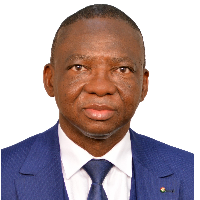 Prof Nicholas Meda
Prof Nicholas Meda Dr Valarie Nkamgang Bemo
Dr Valarie Nkamgang Bemo November 10, 2023 10:00
November 10, 2023 10:00 November 10, 2023 10:30
November 10, 2023 10:30Strengthening Public Health Initiatives in Africa
Moderators: Dr Dieudonne Mwanba Kazadi
Venue: Main Auditorium
10:30 - 10:50: Vaccine and Diagnositics Manufacturing in Africa: Progress, Opportunities, Challenges and Way Forward
Presenter: Ms Akhona Tshangela
10:50 - 11:10: Digitalization in Healthcare Service
Presenter: Mr Steven Wanyee Macharia
 Ms Akhona Tshangela
Ms Akhona Tshangela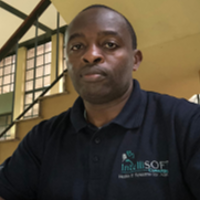 Mr Steven Wanyee Macharia
Mr Steven Wanyee Macharia November 10, 2023 11:10
November 10, 2023 11:10Sub-Theme: Cross Cutting
Moderator: Dr Nyambe Sinyange
Venue: Main Auditorium
11:10 - 11:20: OP902: Qualitative insights on barriers to receiving a second dose of measles-containing vaccine (MCV2), Oromia Region of Ethiopia
Presenter: Kalkidan Solomon Deribe
11:20 - 11:30: OP928: Investigation d’un cas de Paralysie Flasque Aiguë, district Ikongo, Madagascar, août 2023
Presenter: Andrindraibe Nantenaina Désiré HANITRINIAINA
11:30 - 11:40: OP915: Evaluating the effectiveness of a mentorship programme in improving infection prevention and control standards at the primary healthcare level in Nigeria
Presenter: Aisha Sani Faruk
11:40 - 11:50: OP909: Implementing a hospital-based sentinel site surveillance for adverse events of special interest following COVID-19 vaccination, Uganda (HBSS_UG)
Presenter: Stephen Pande Legesi
11:50 - 12:00: OP904: Investigation of a protracted malaria outbreak in Upper Muzarabani, Centenary District, Zimbabwe, 2023
Presenter: Nathan Chiboyiwa
12:00 - 12:10: Questions and Answers
 November 10, 2023 13:00
November 10, 2023 13:00 November 10, 2023 14:00
November 10, 2023 14:00JIEPH 5th Annivesary, Presentation of Awards and Closing Ceremony
Dr Ditu Kazembe / Dr Fredrick Odhiambo / Dr Sheba Gitta
All delegates are requested to wear their AFENET tshirts (included in the conference bags given at registration) for the conference closing ceremony on 10th November 2023.
Prepare to be inspired and empowered at the upcoming 8th AFENET Scientific Conference, set to ignite your mind from November 5th to 10th, 2023. Among the many captivating discussions and sessions, the spotlight will shine brightly on the Women's Panel, where remarkable individuals will share their stories, ideas, and visions. Be part of this vibrant celebration of diversity, as we explore the limitless potential of women in the field of public health and epidemiology. Don't miss the chance to be a part of this dynamic and thought-provoking event!
.png)
.png)

